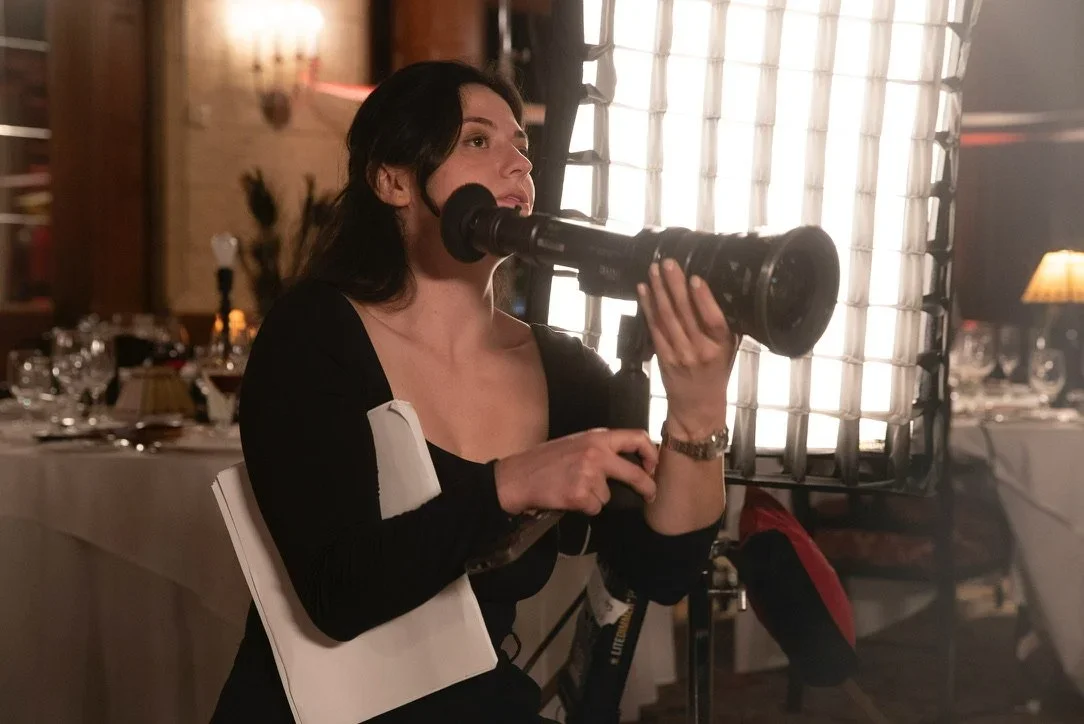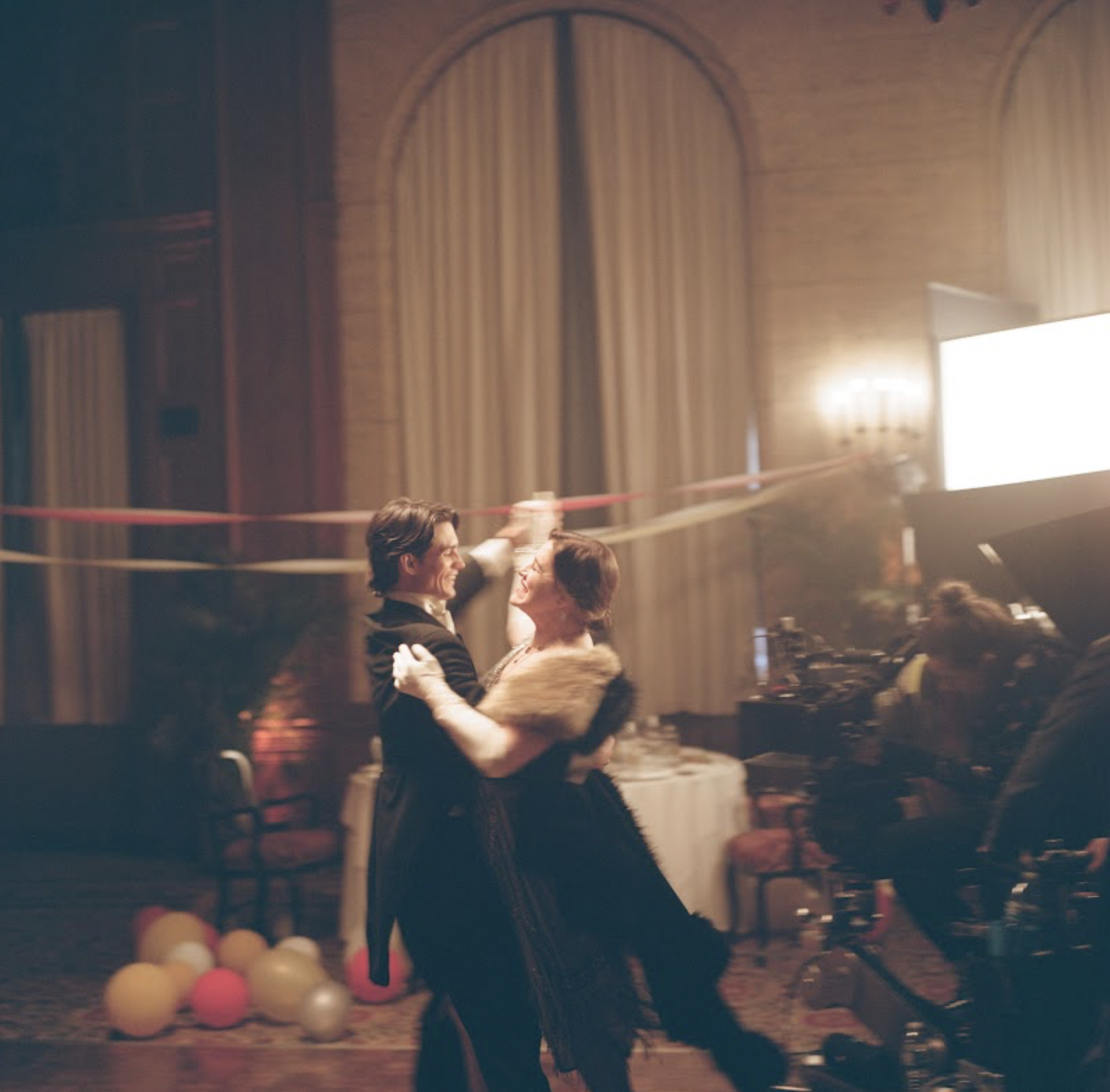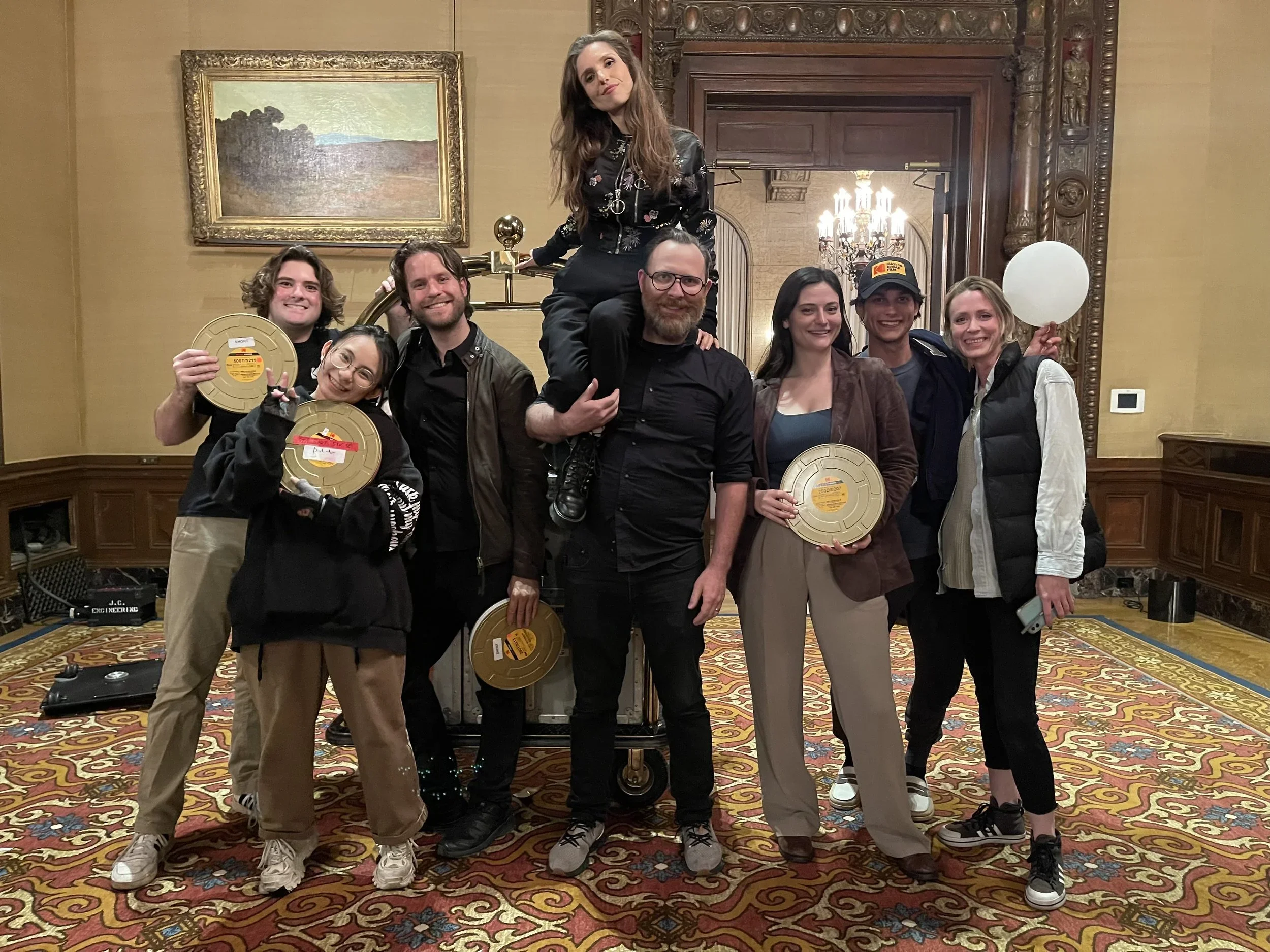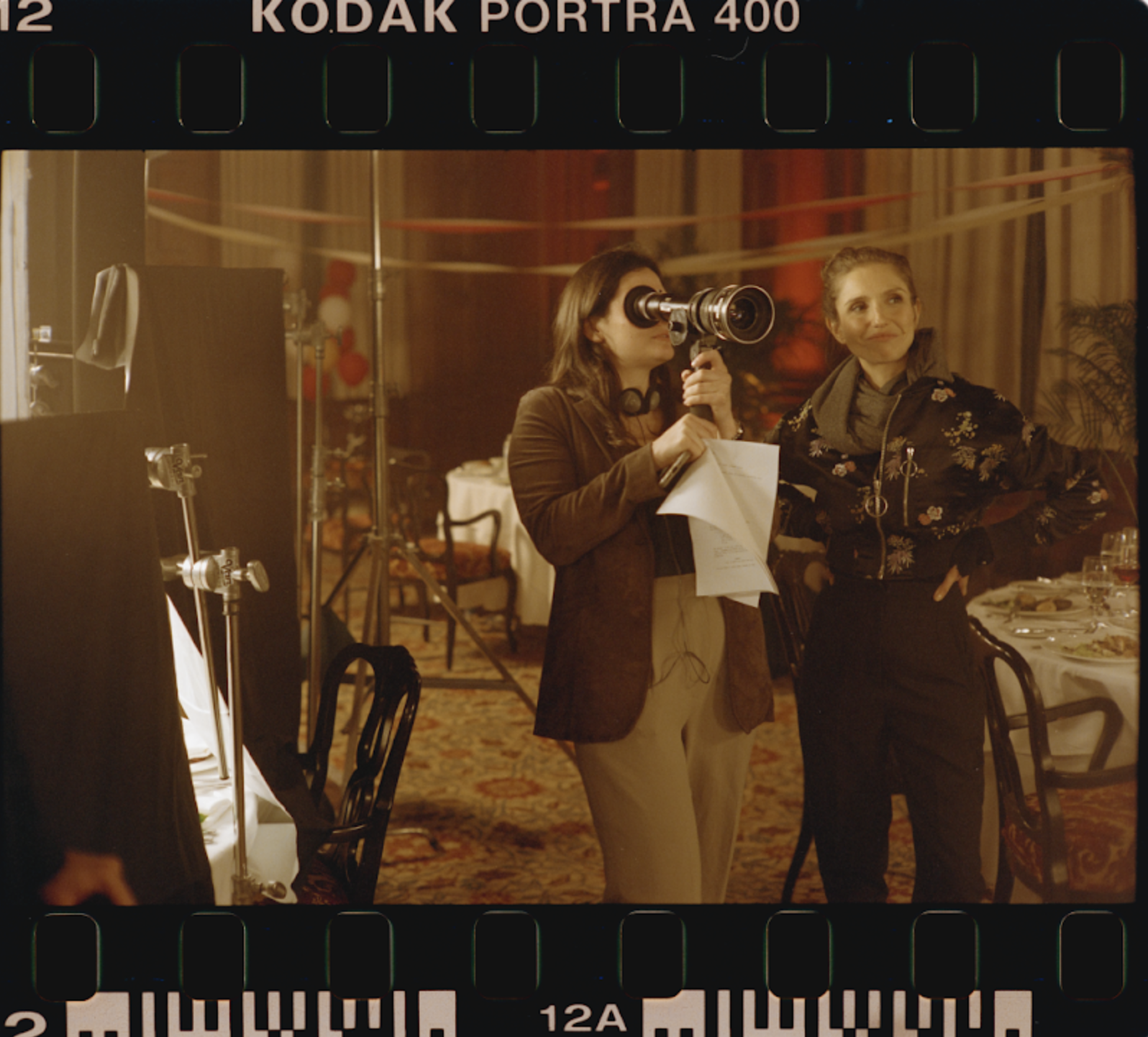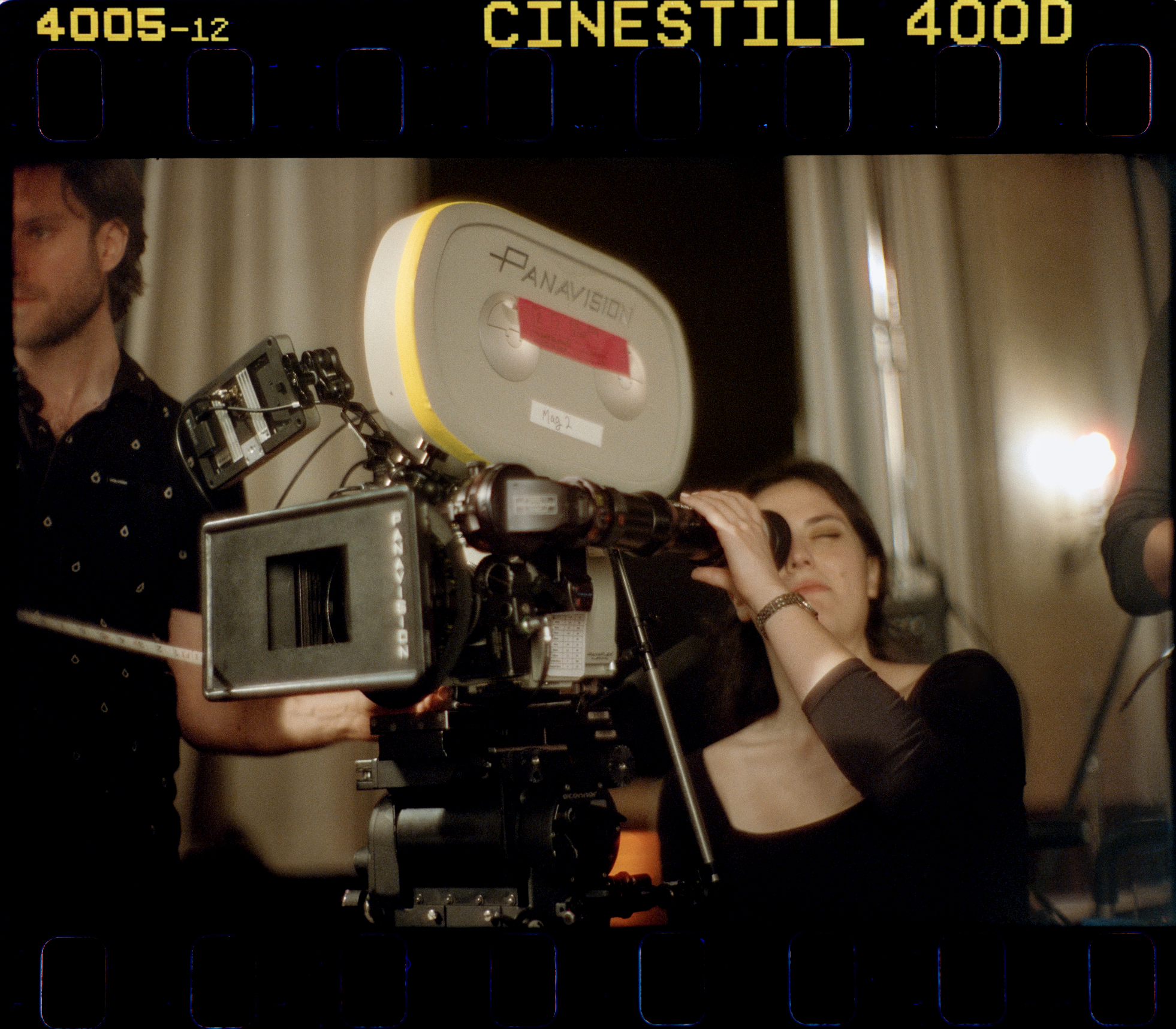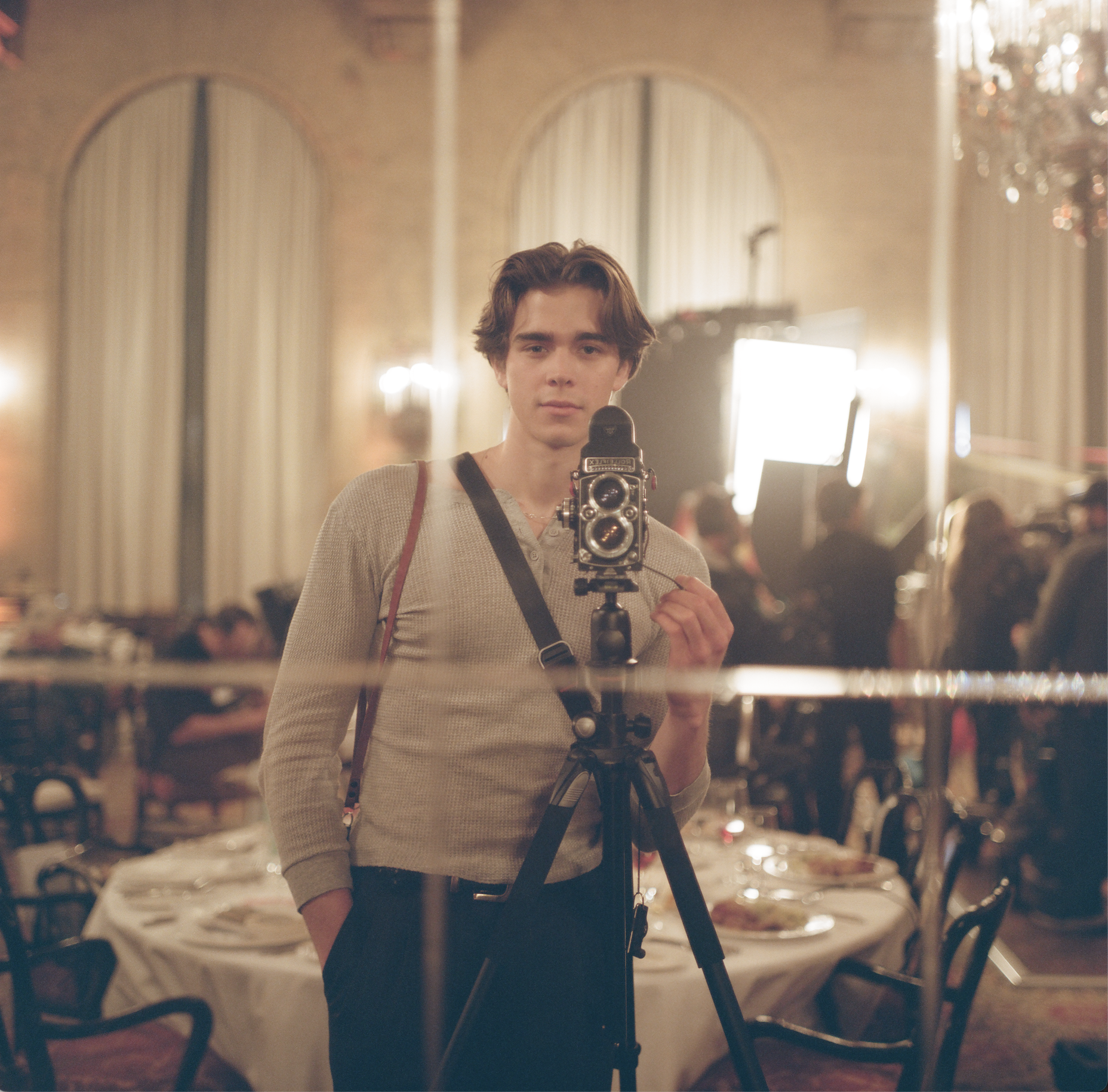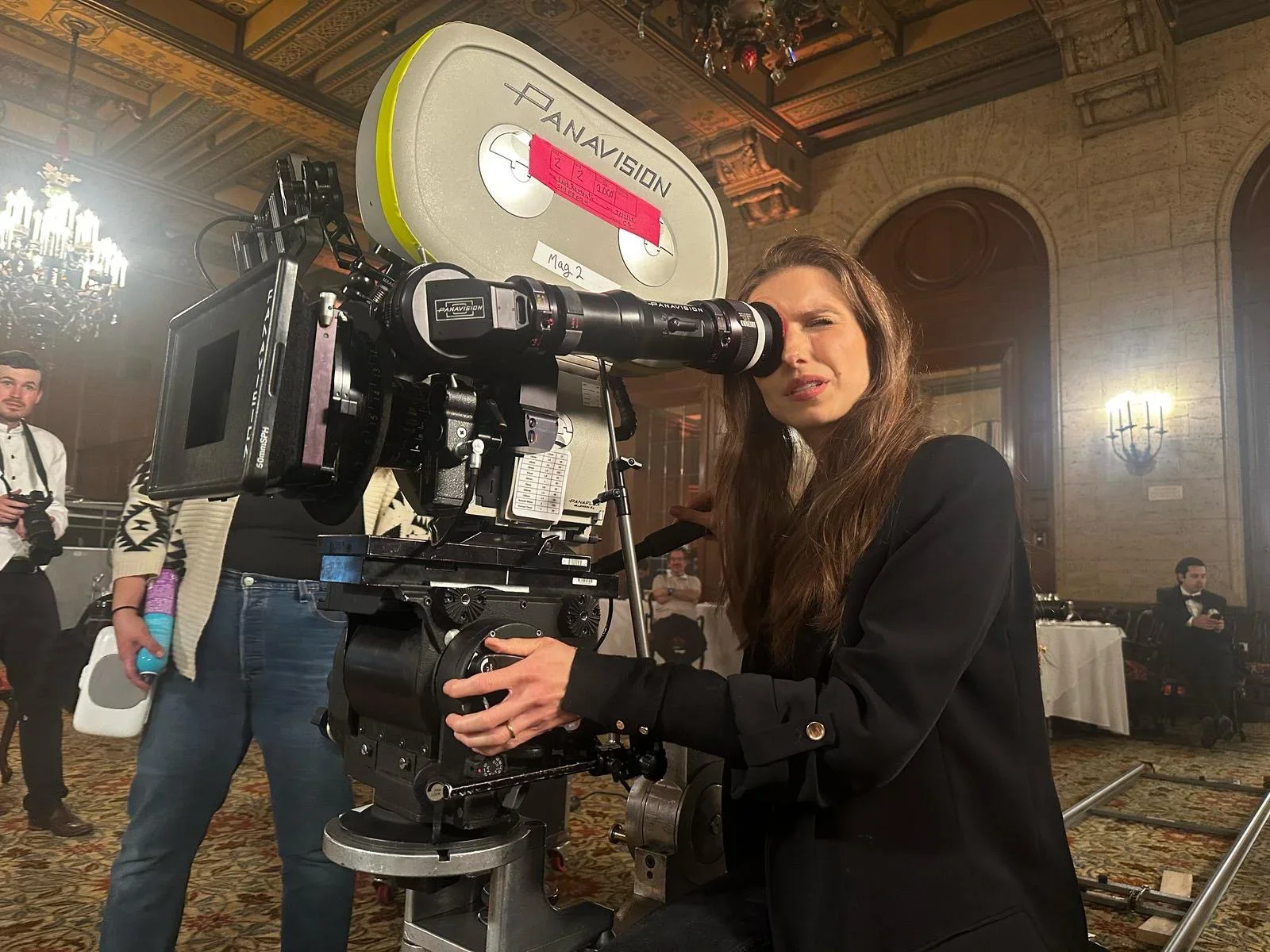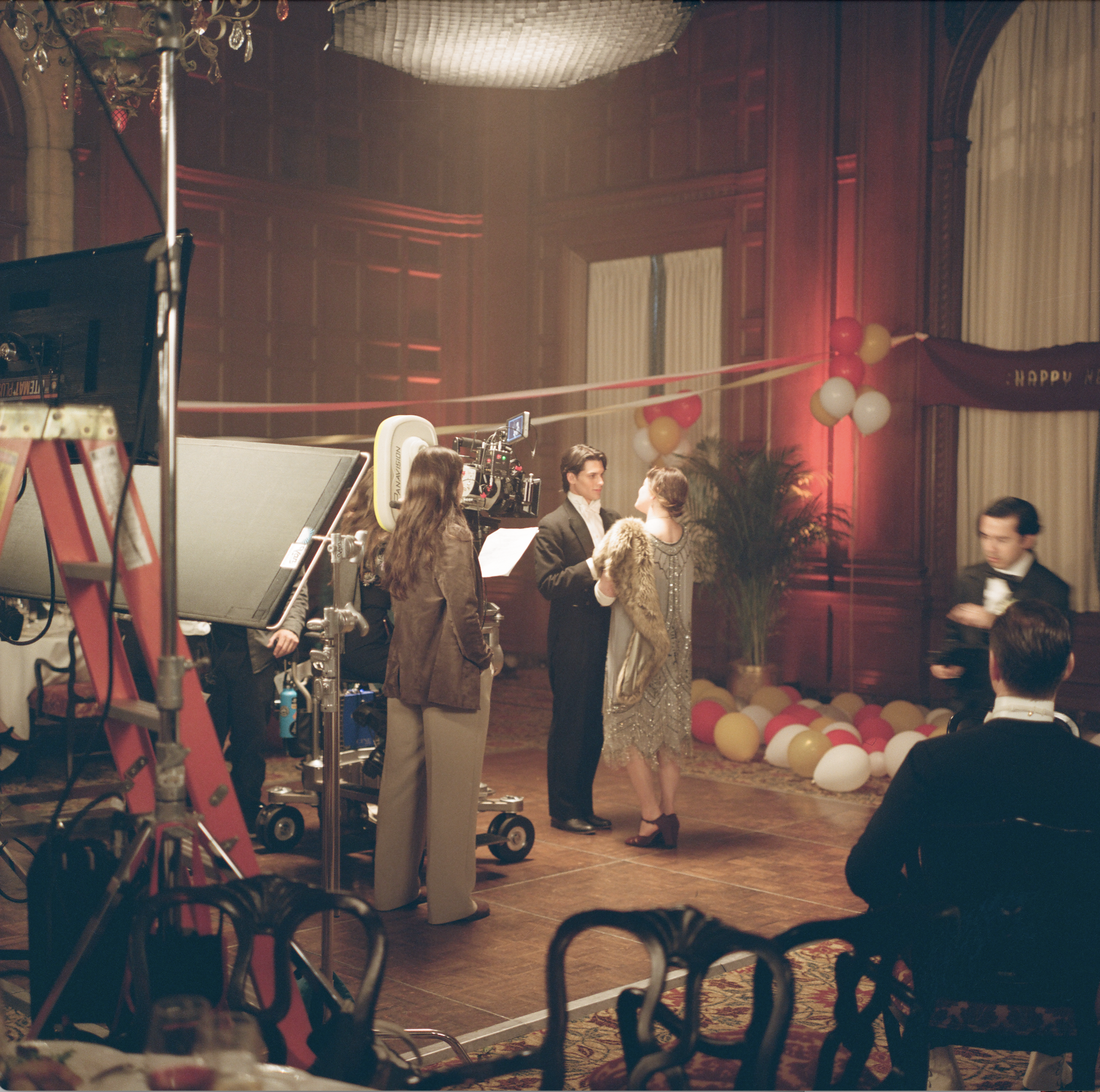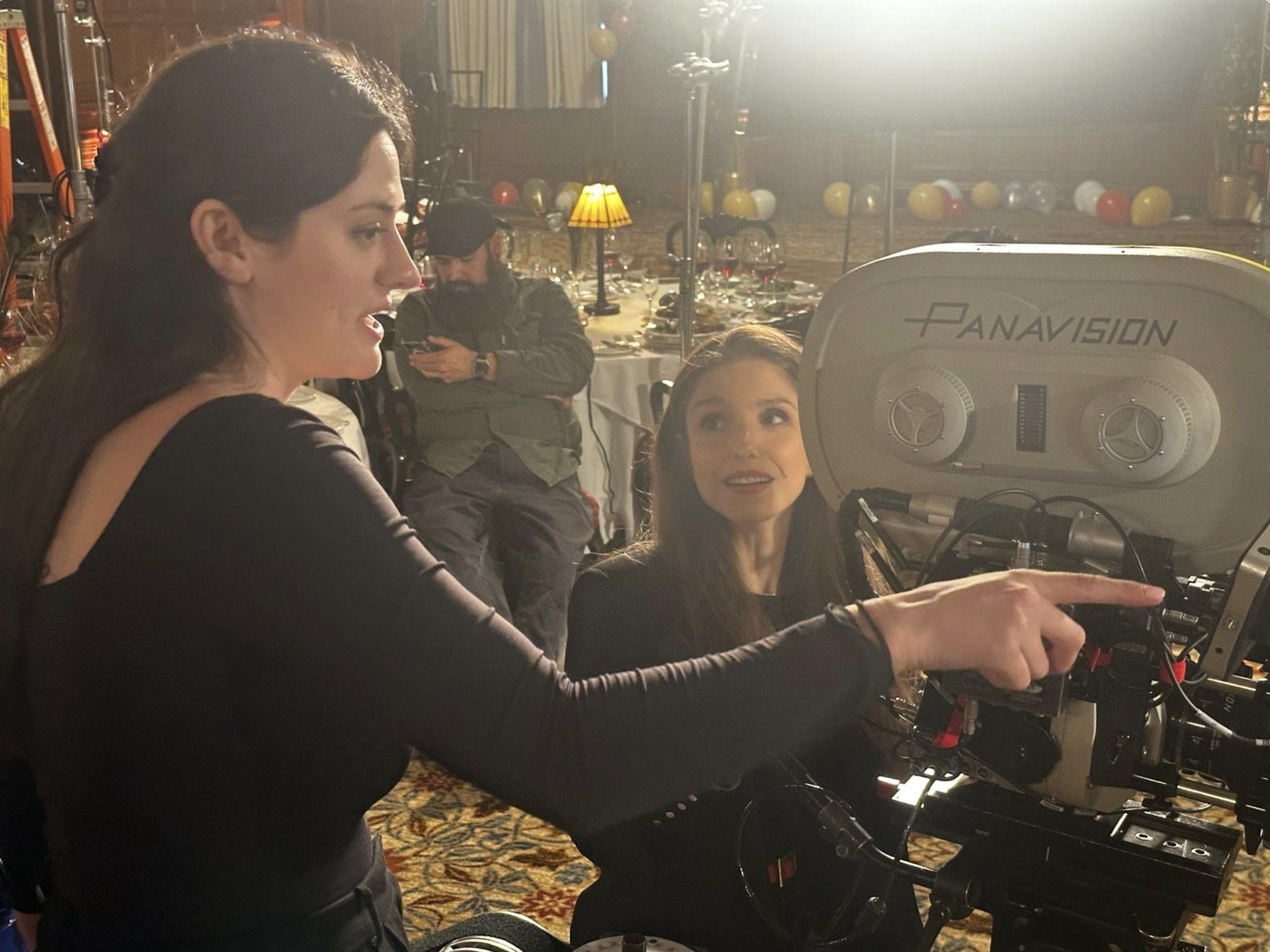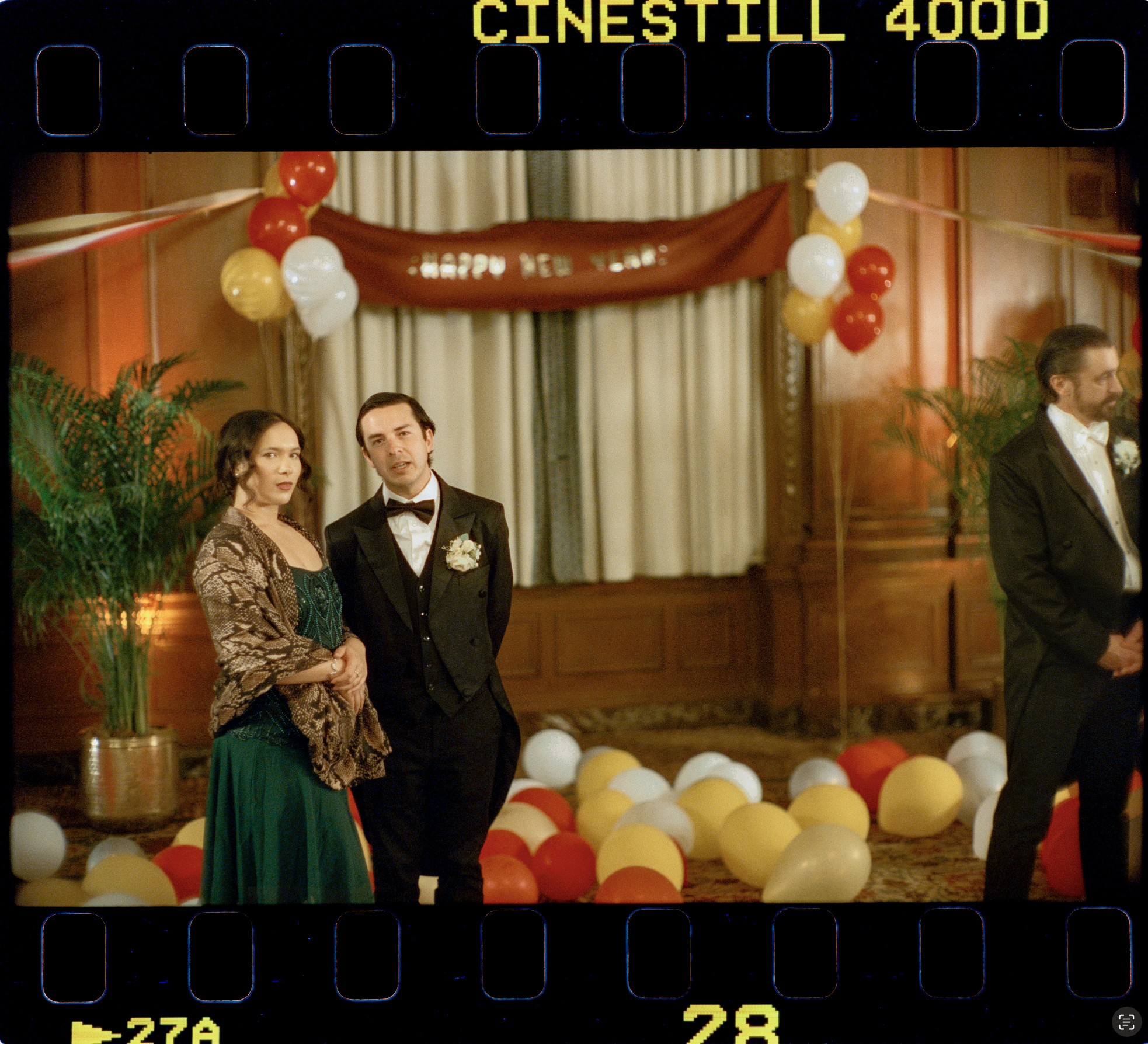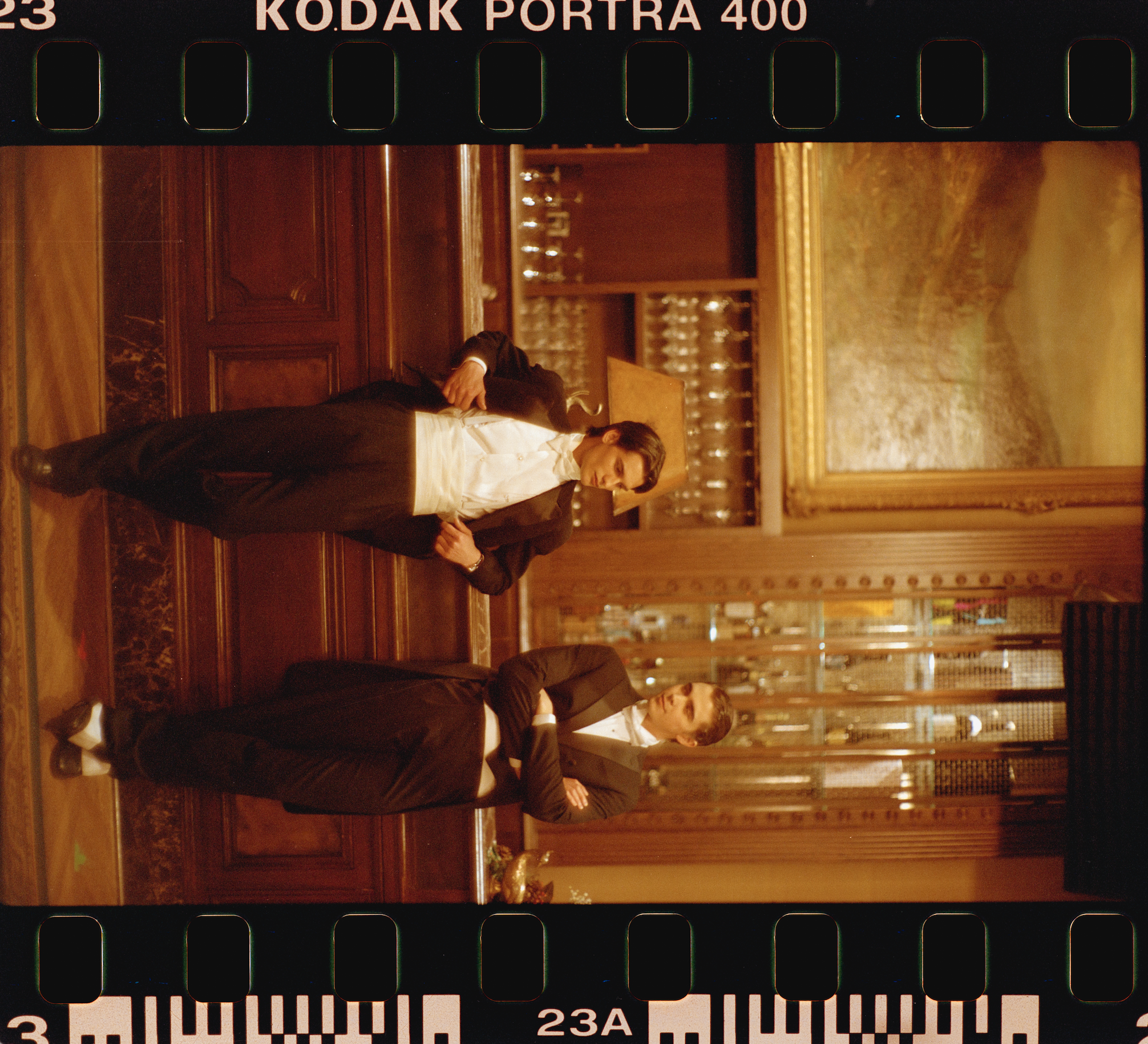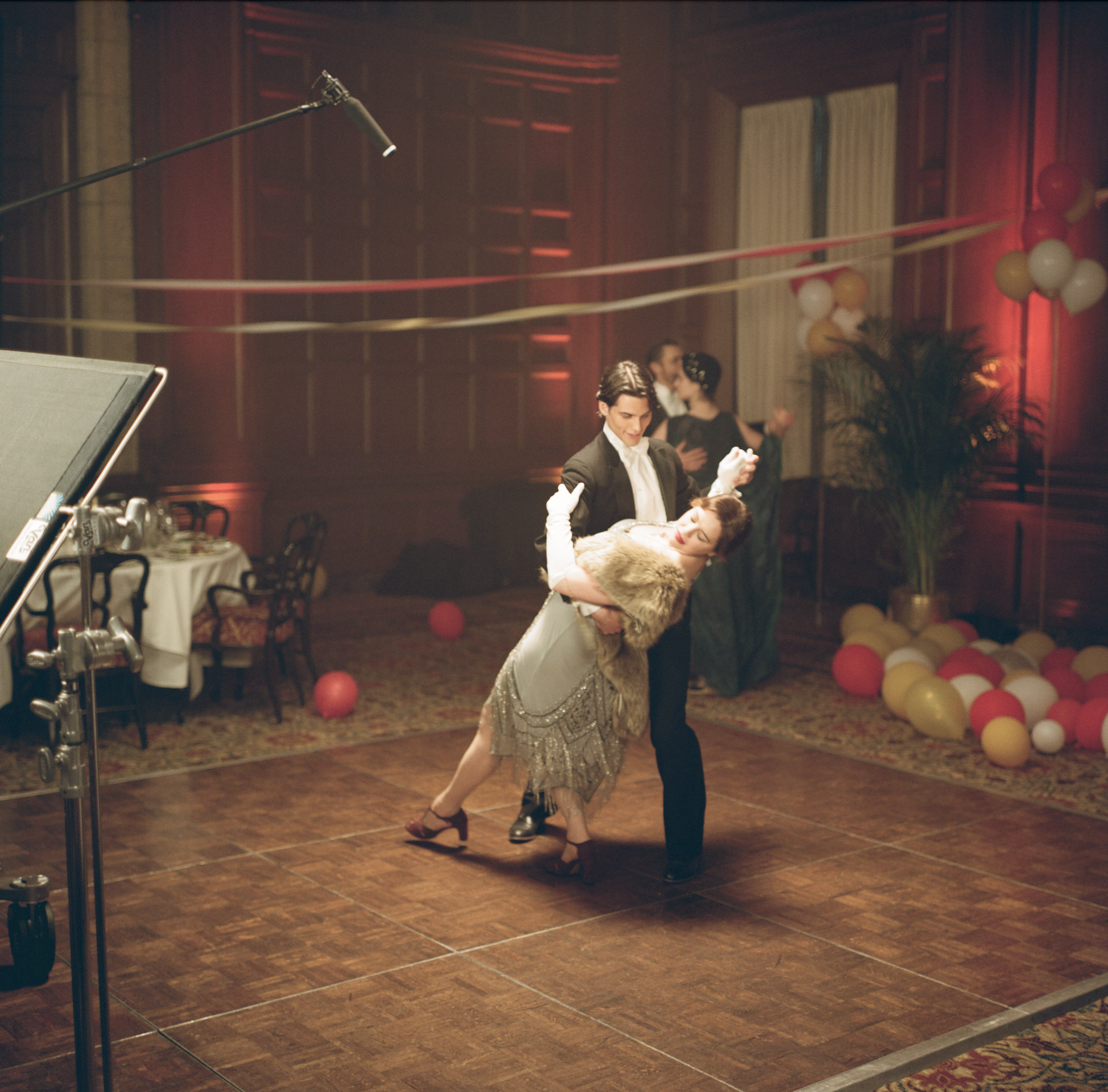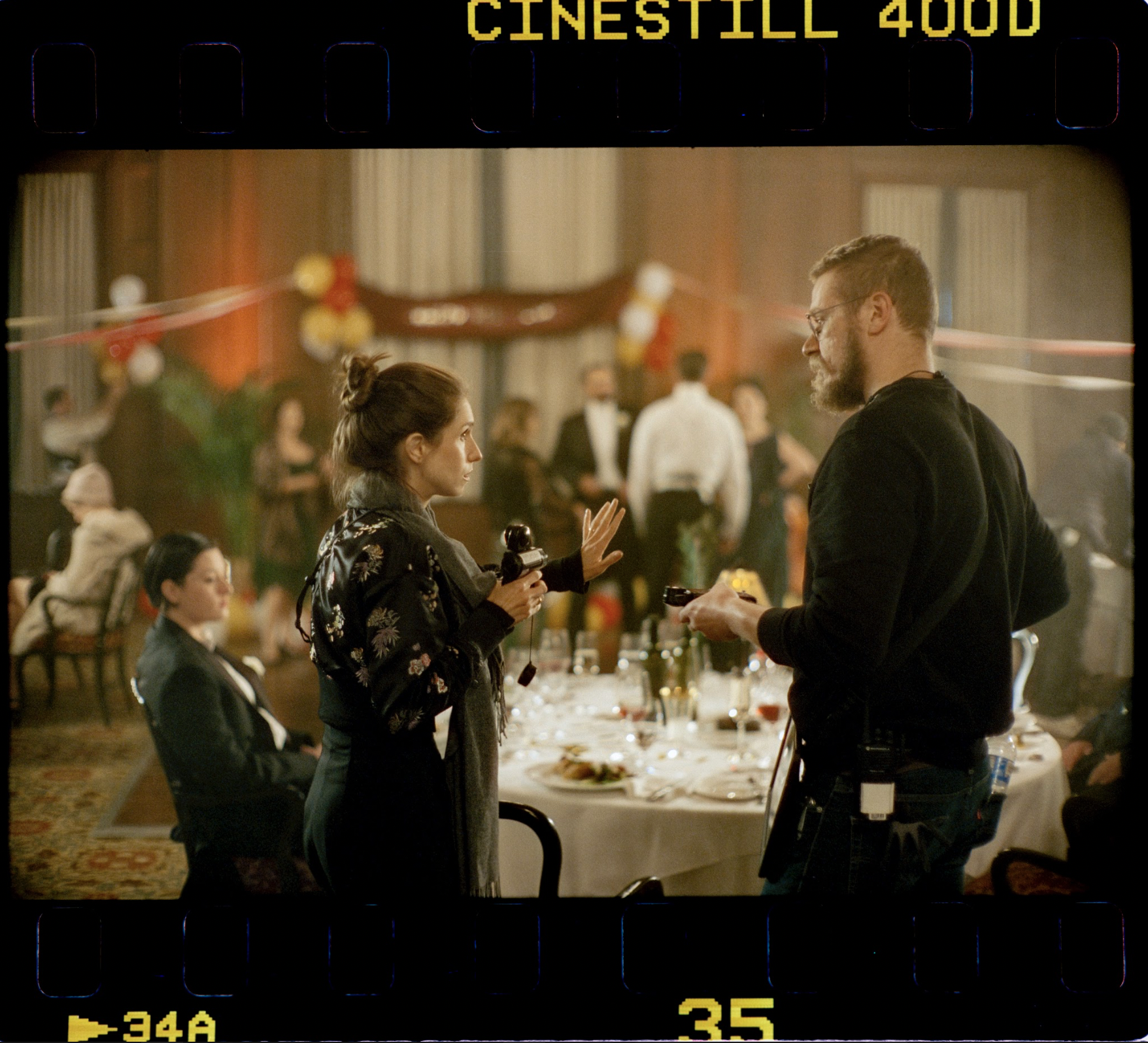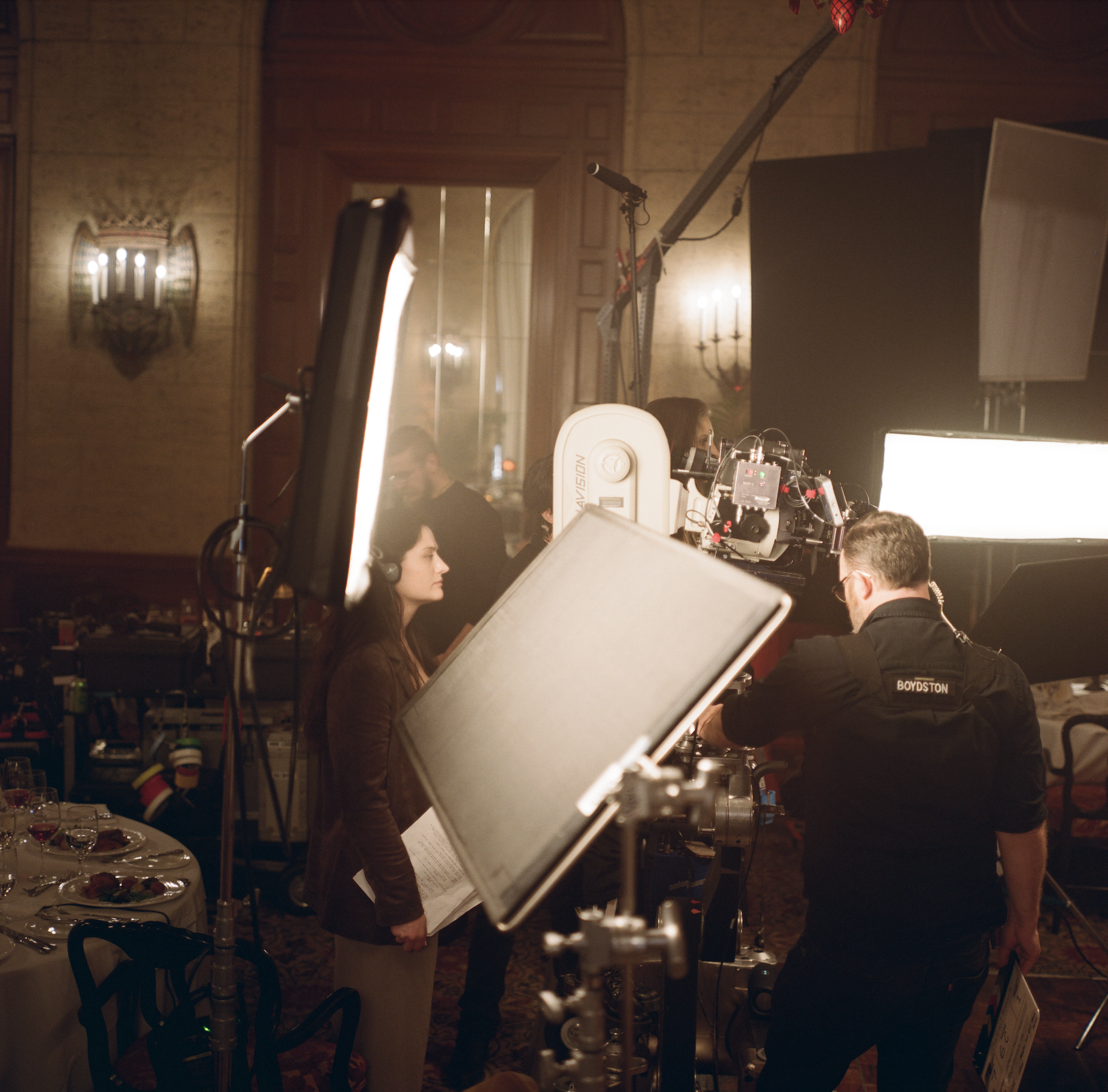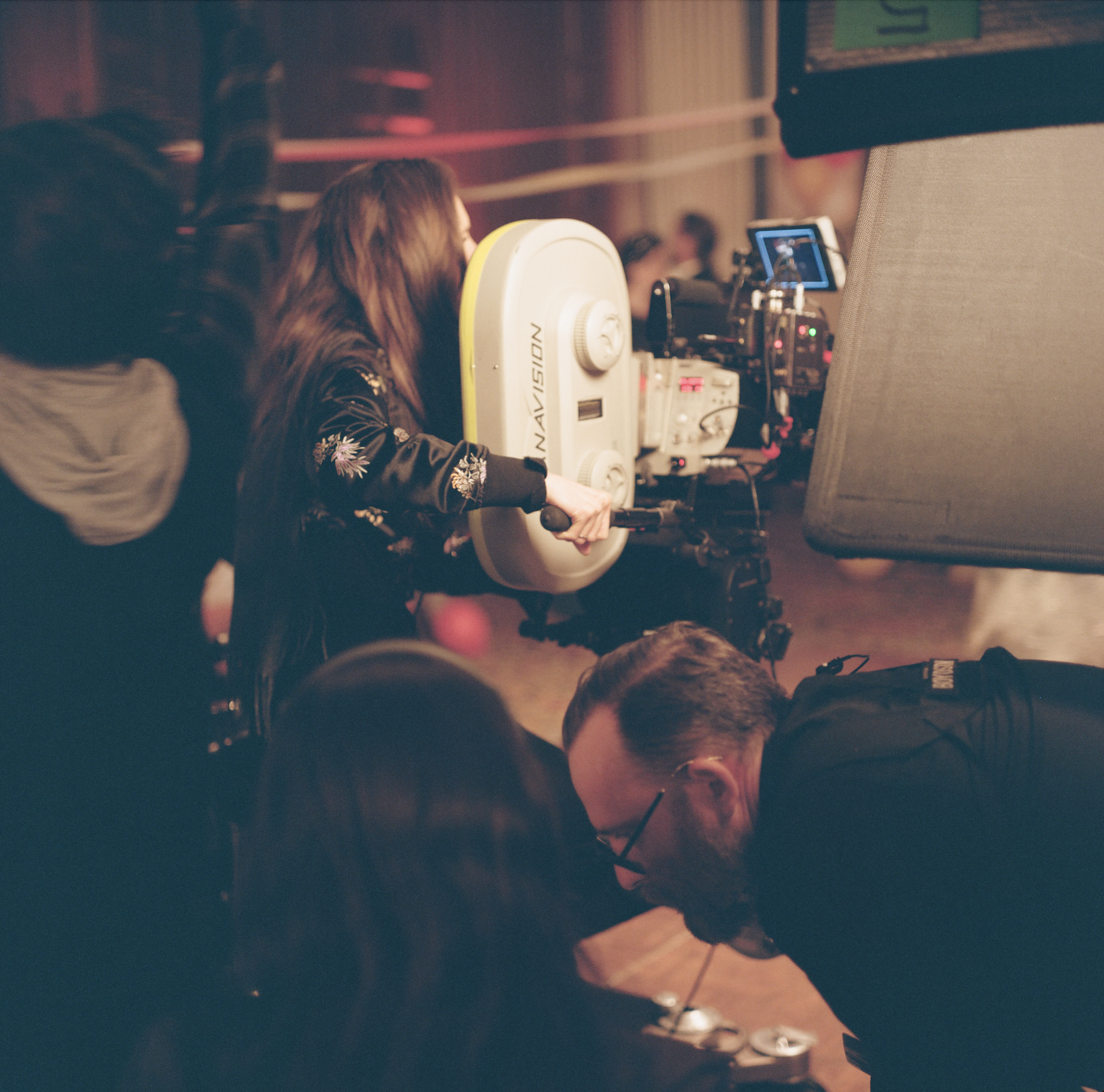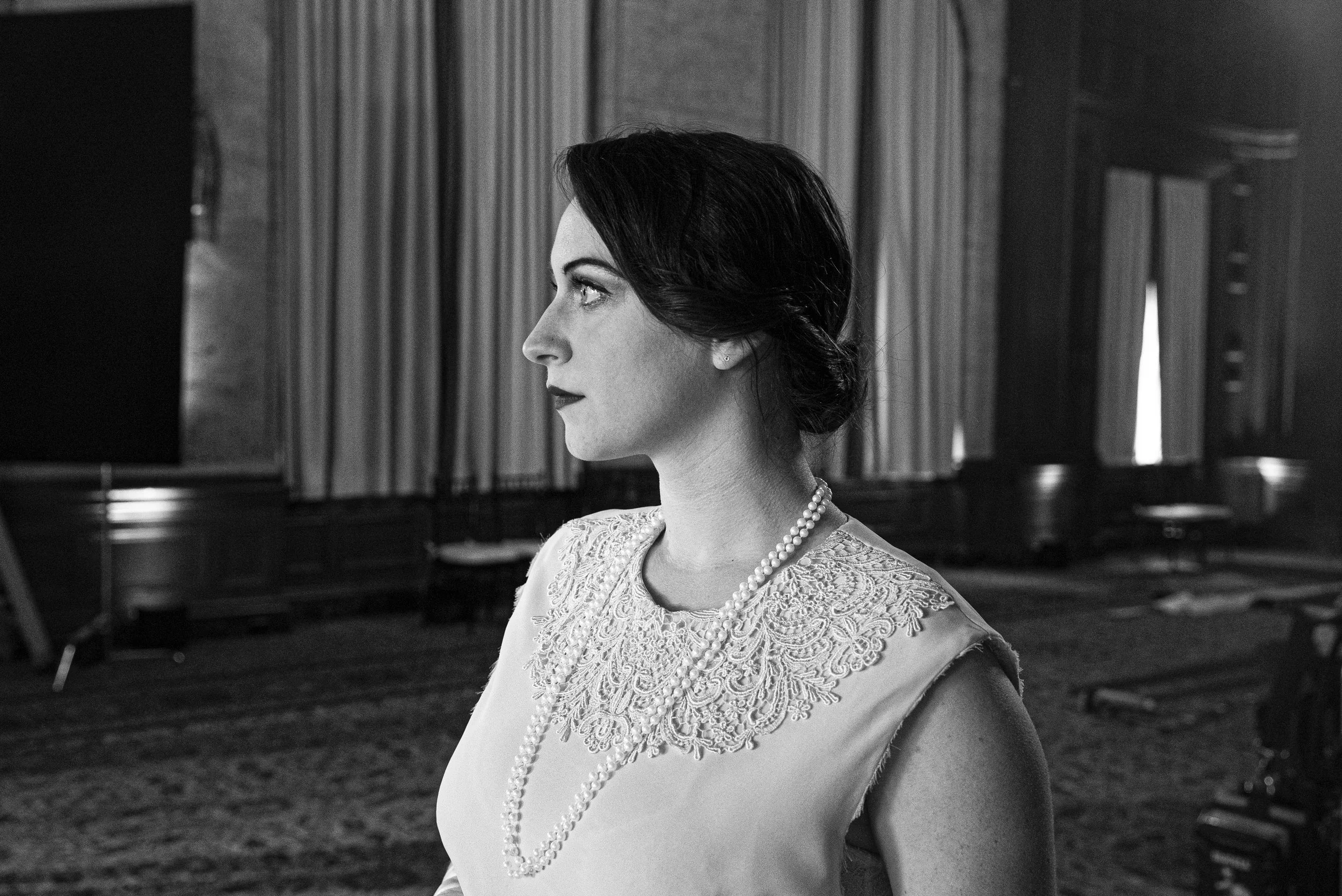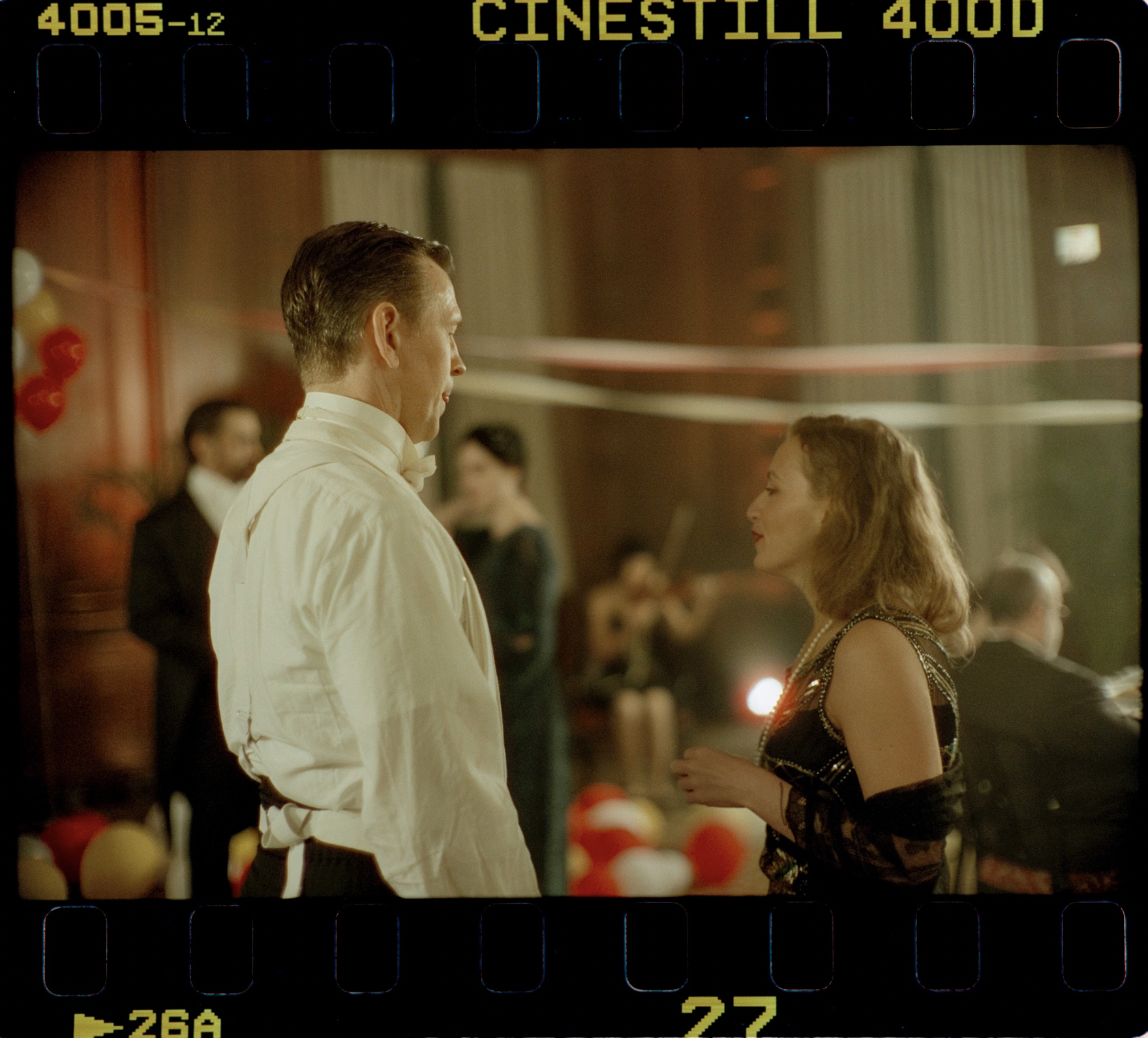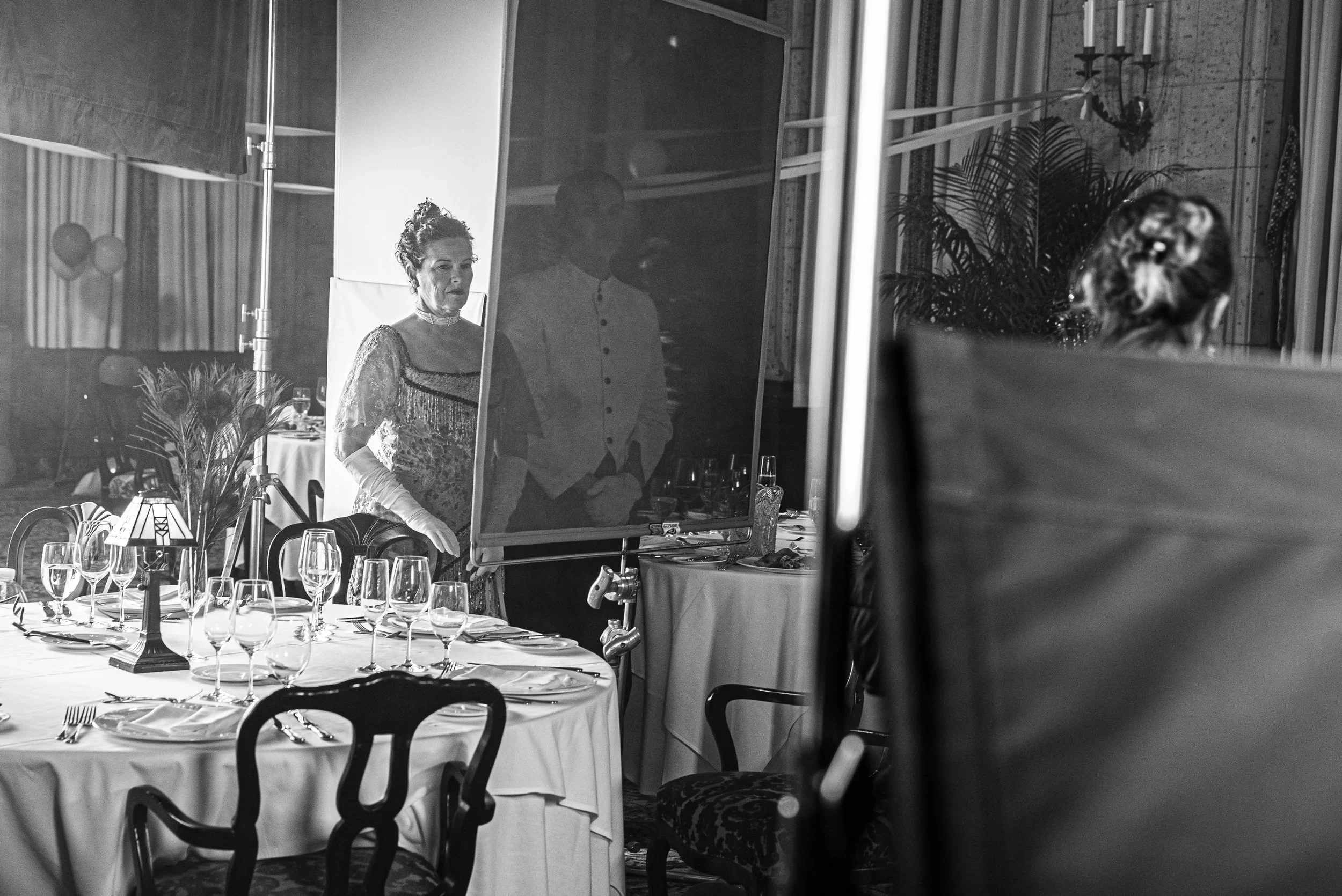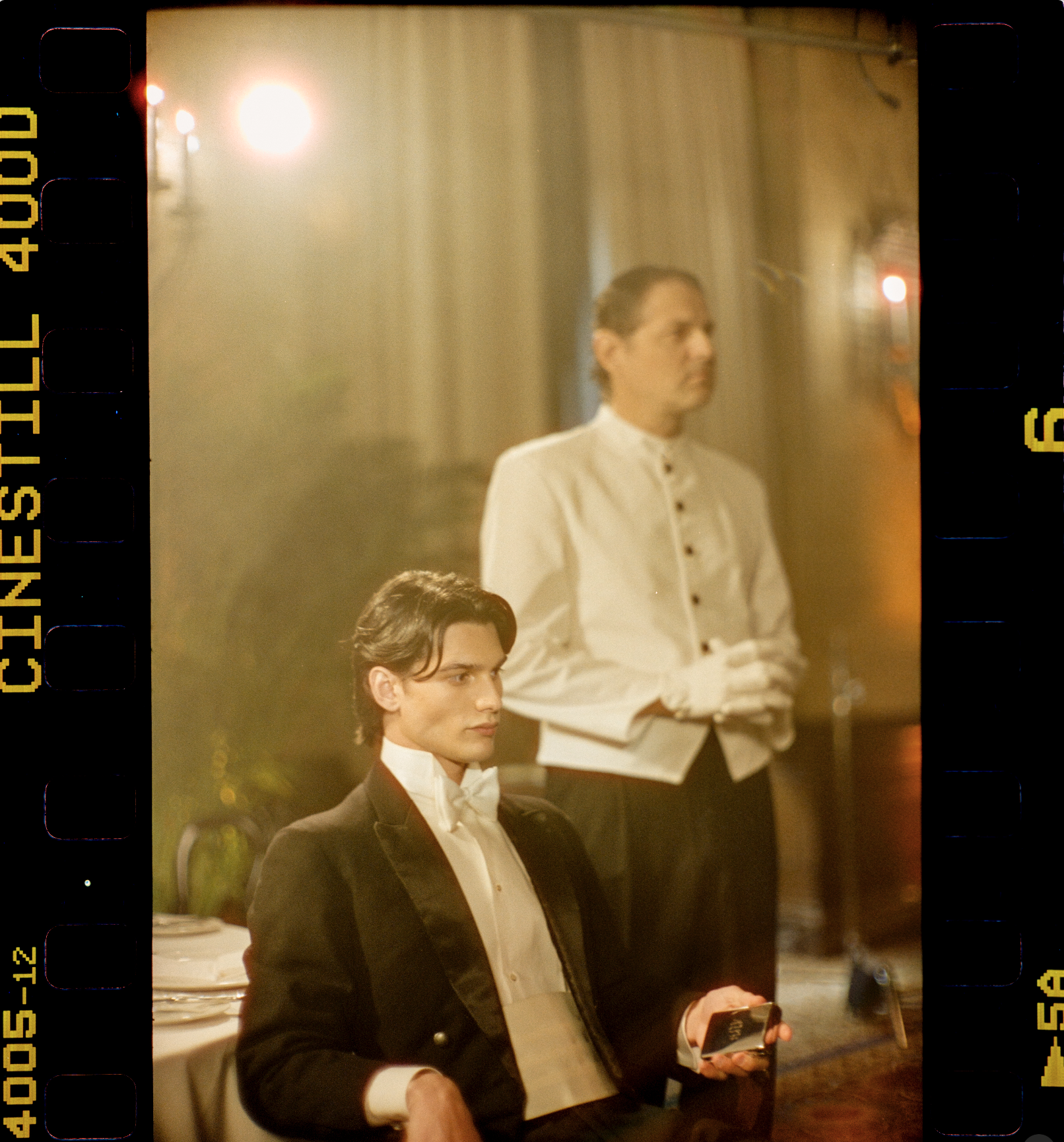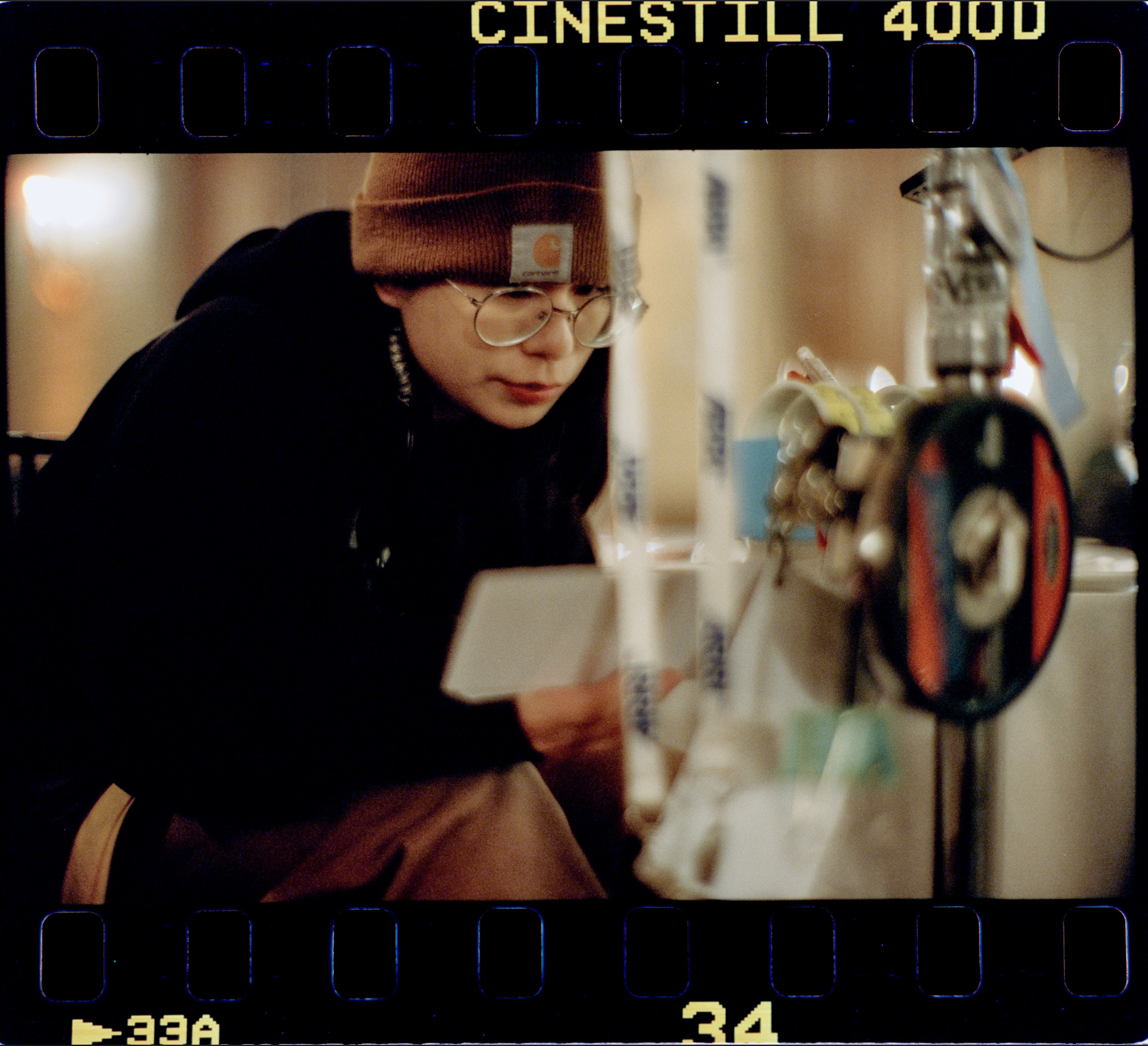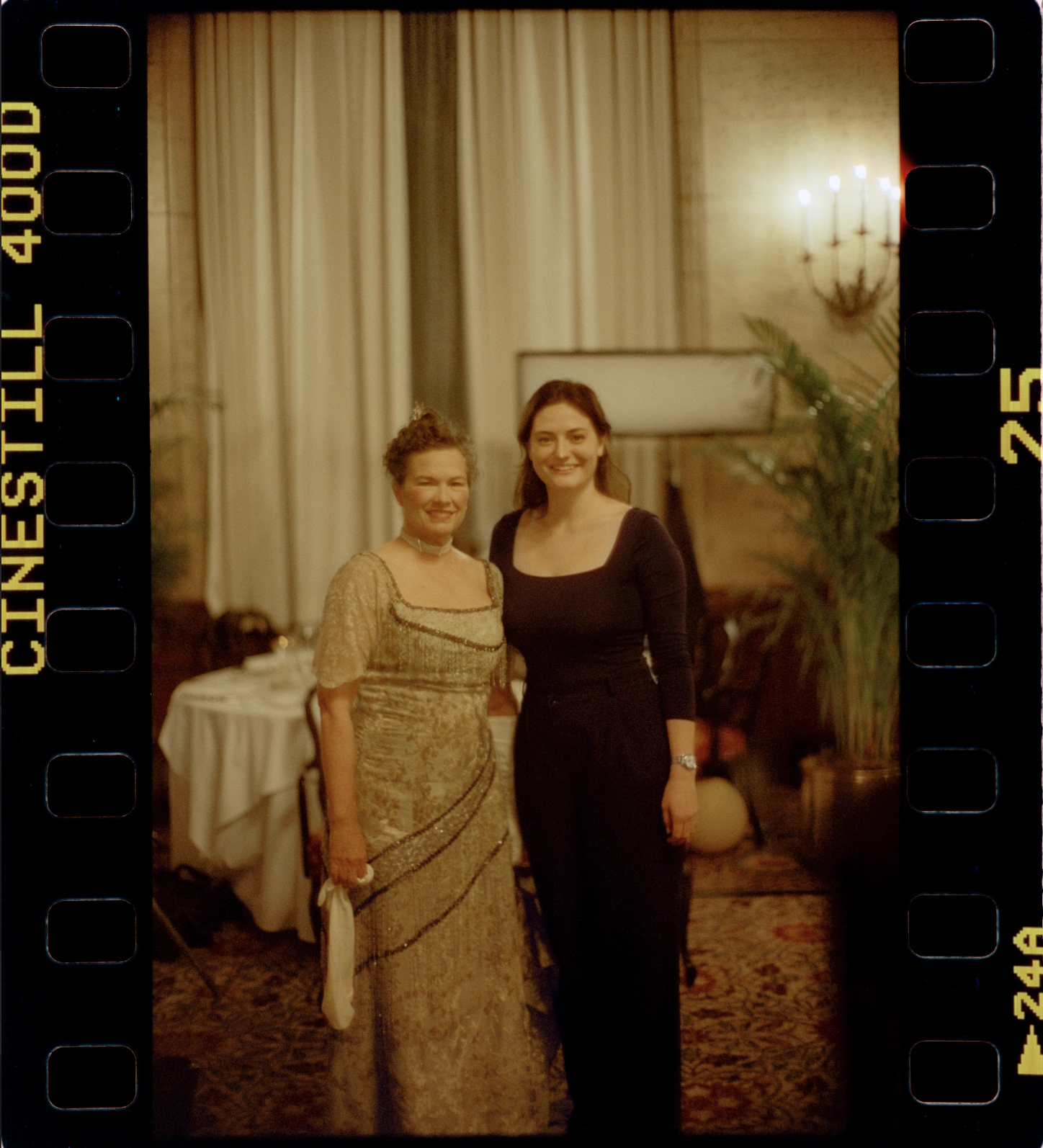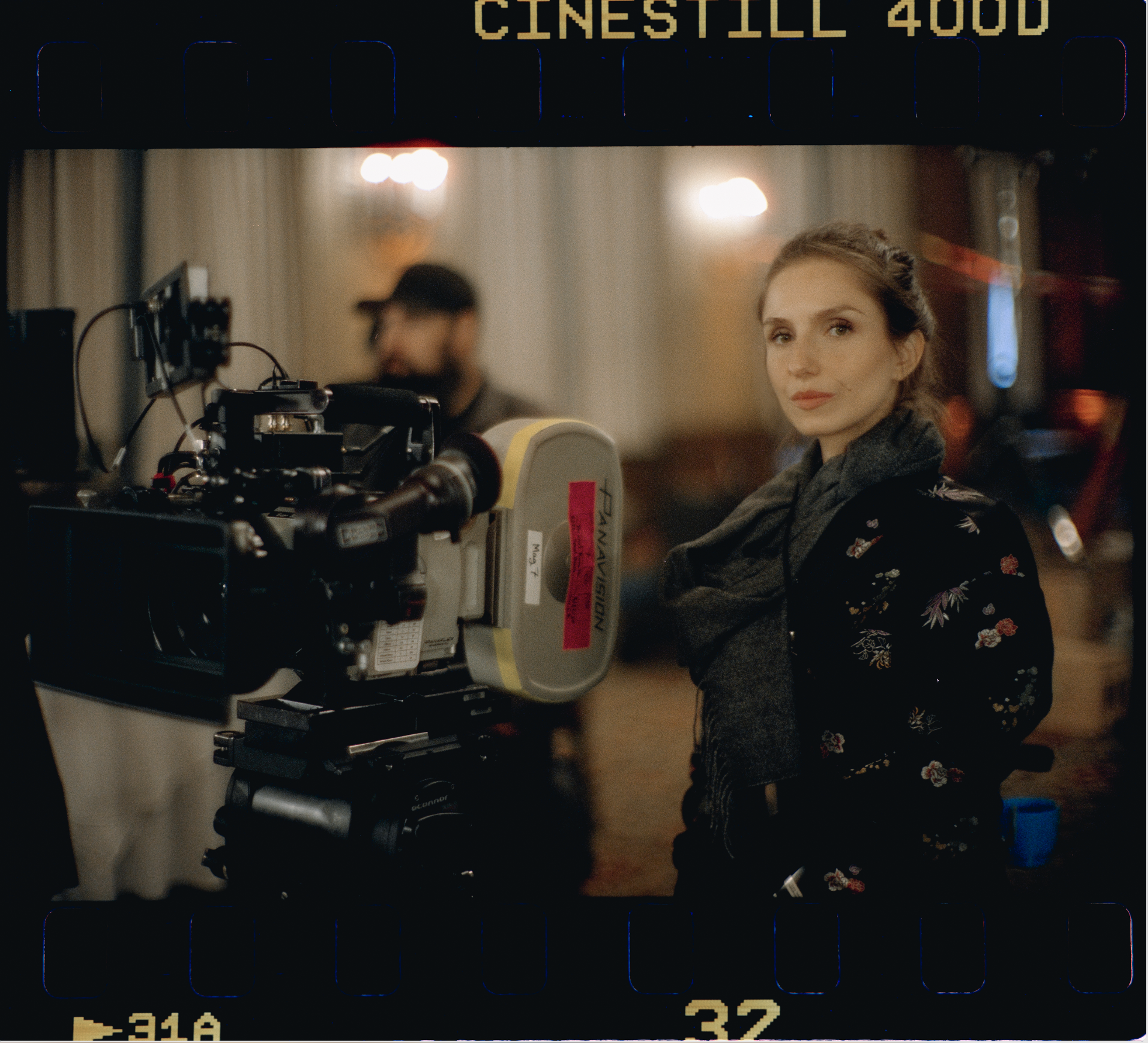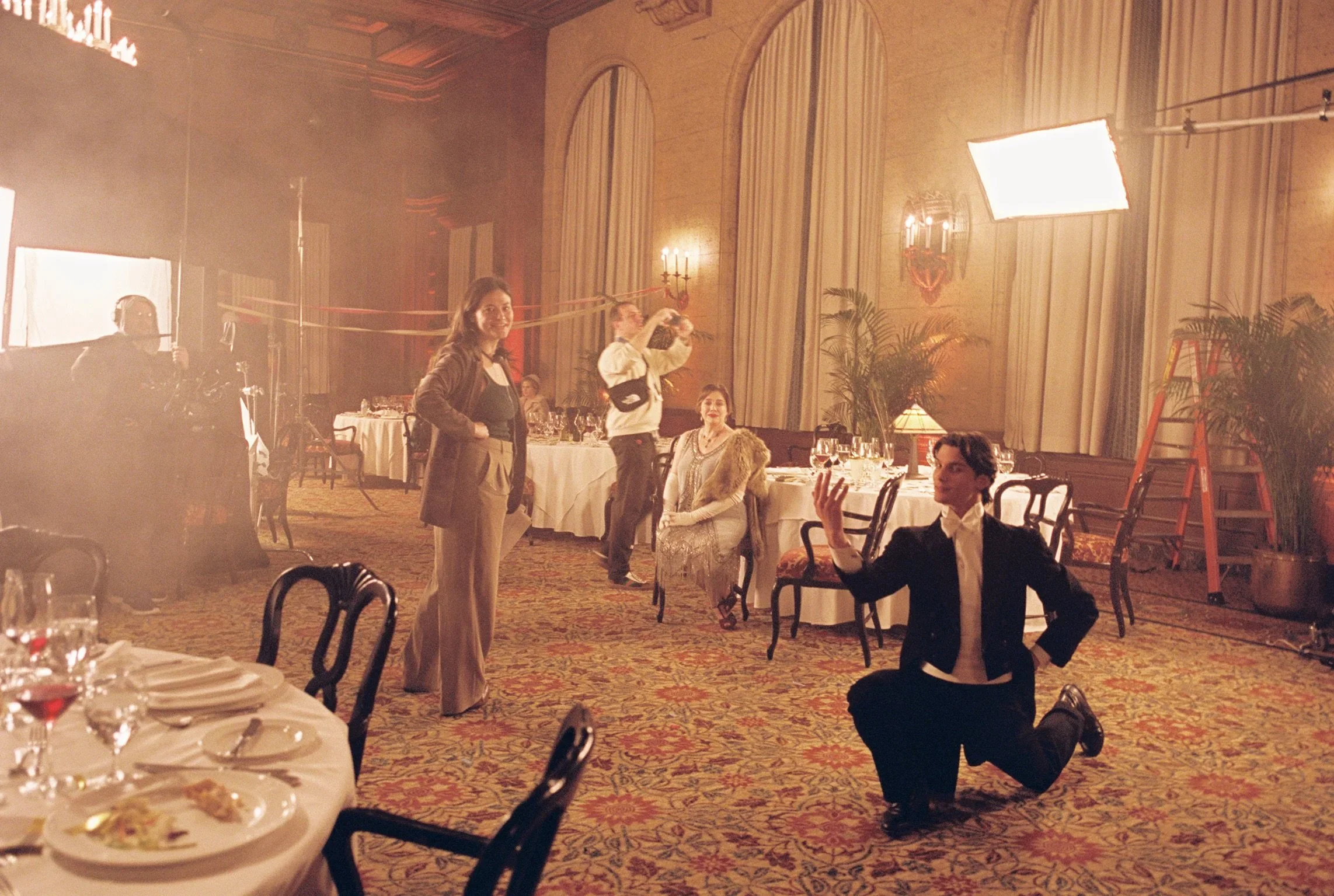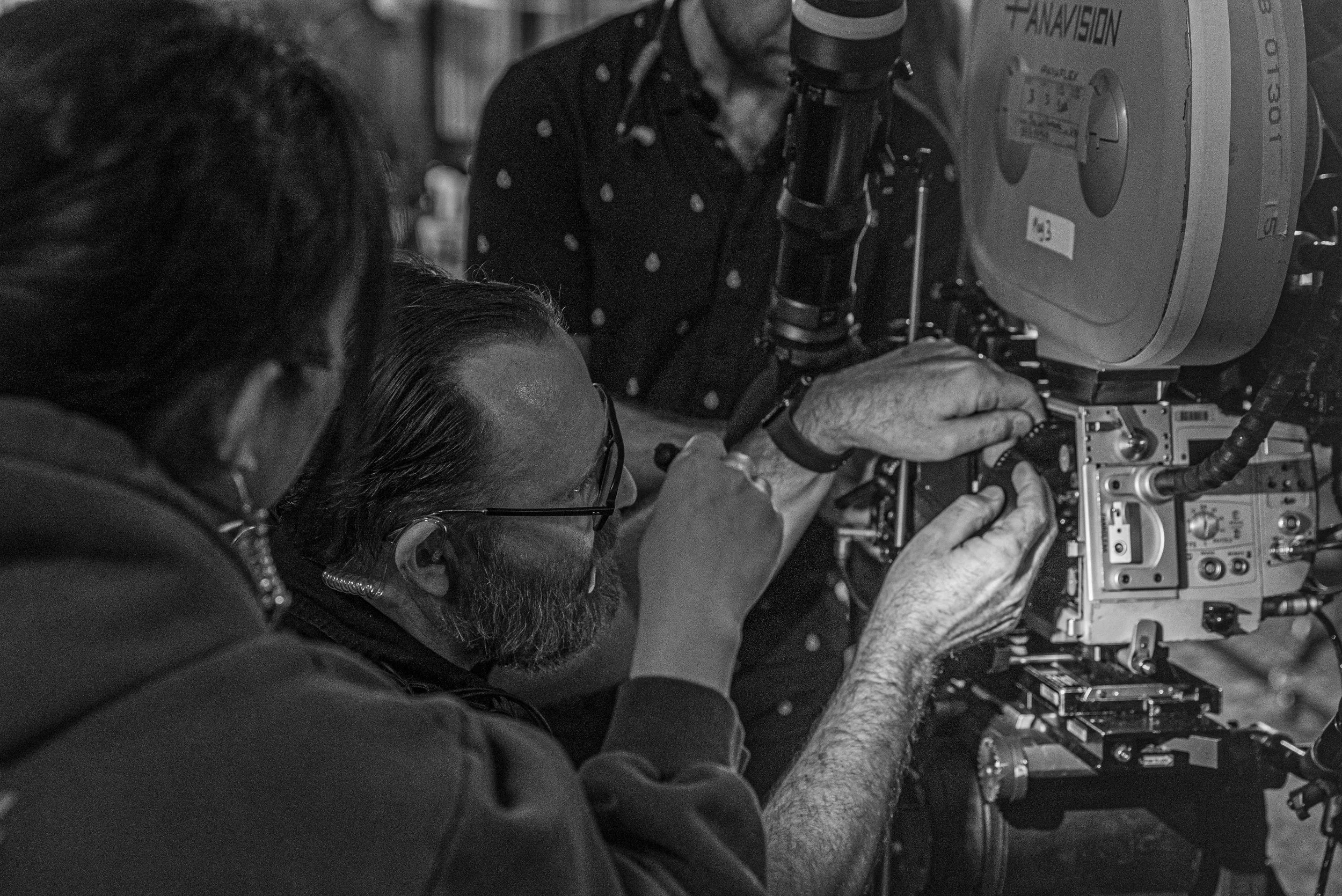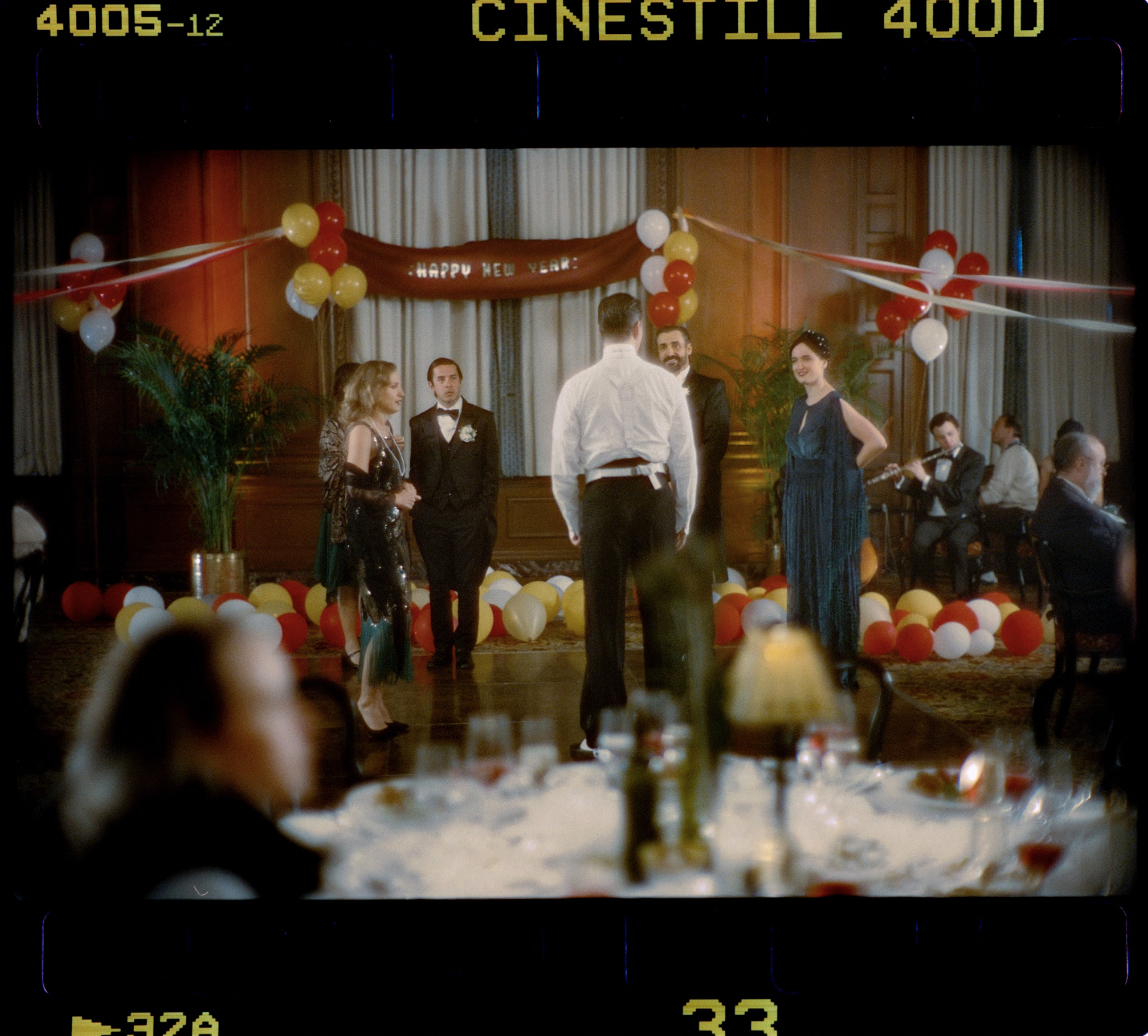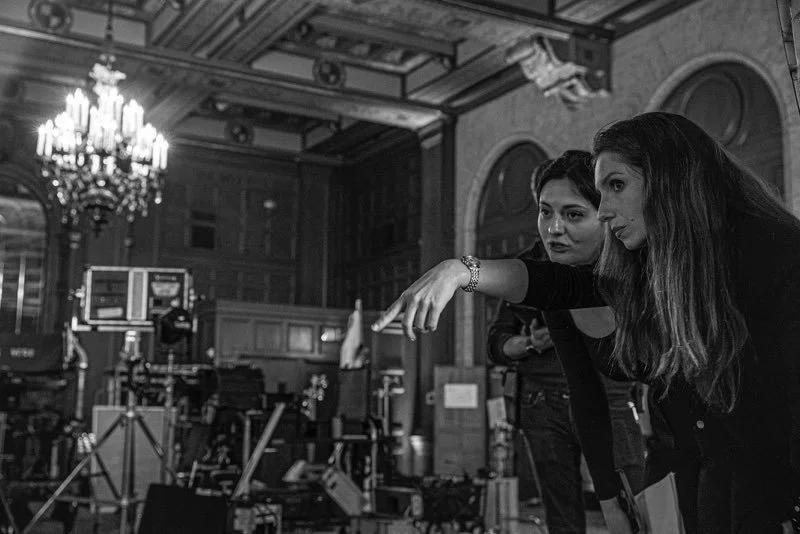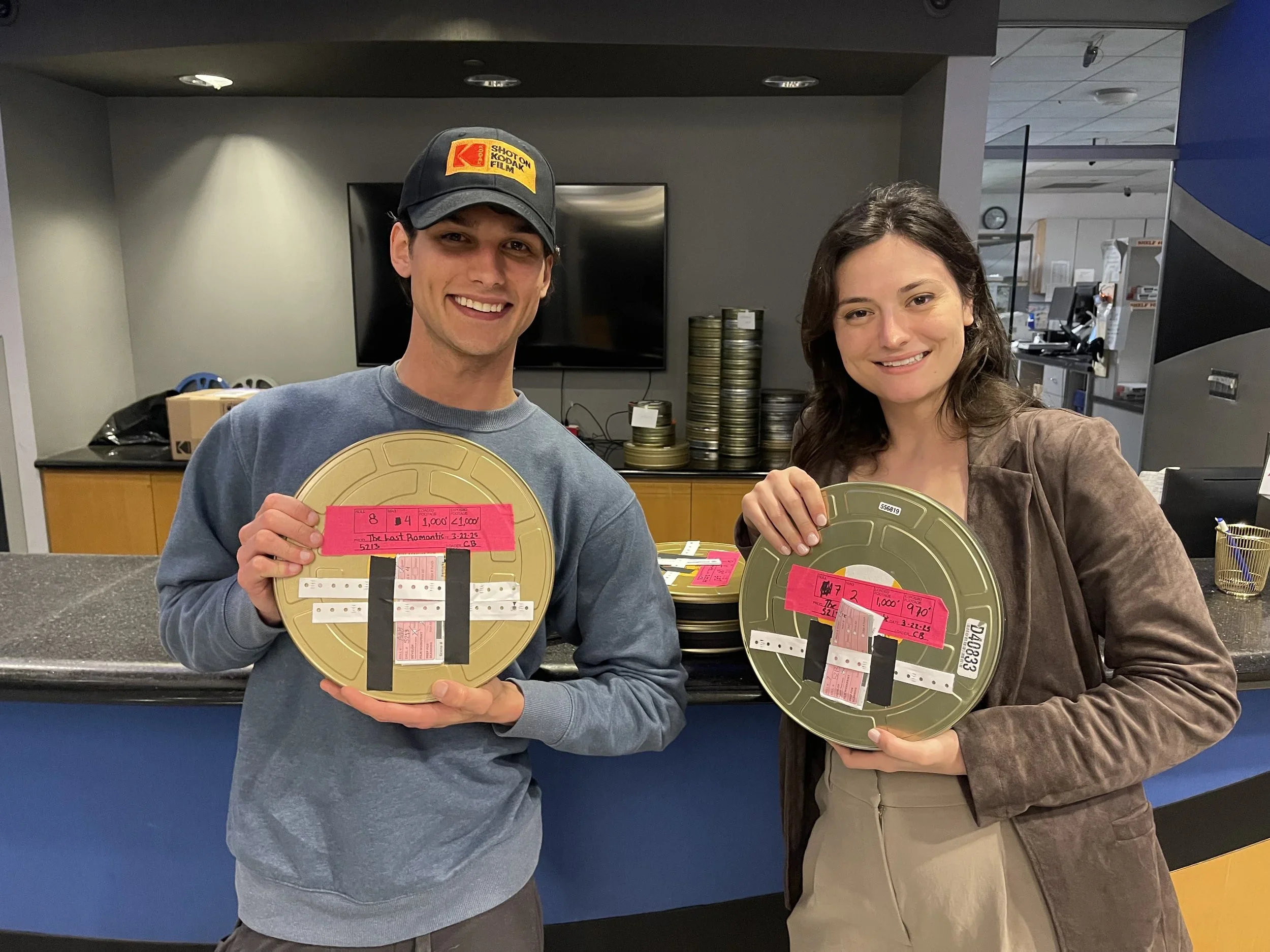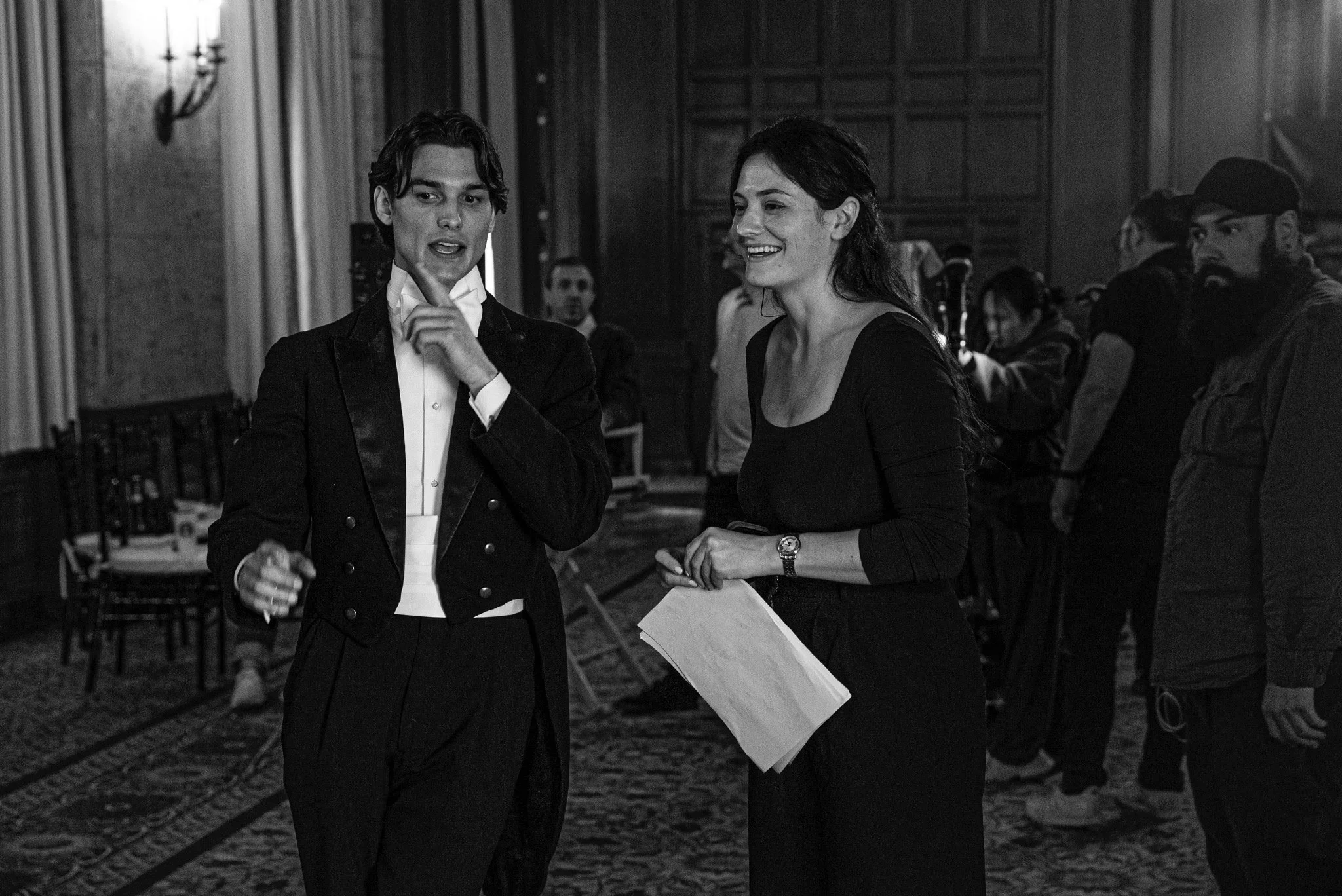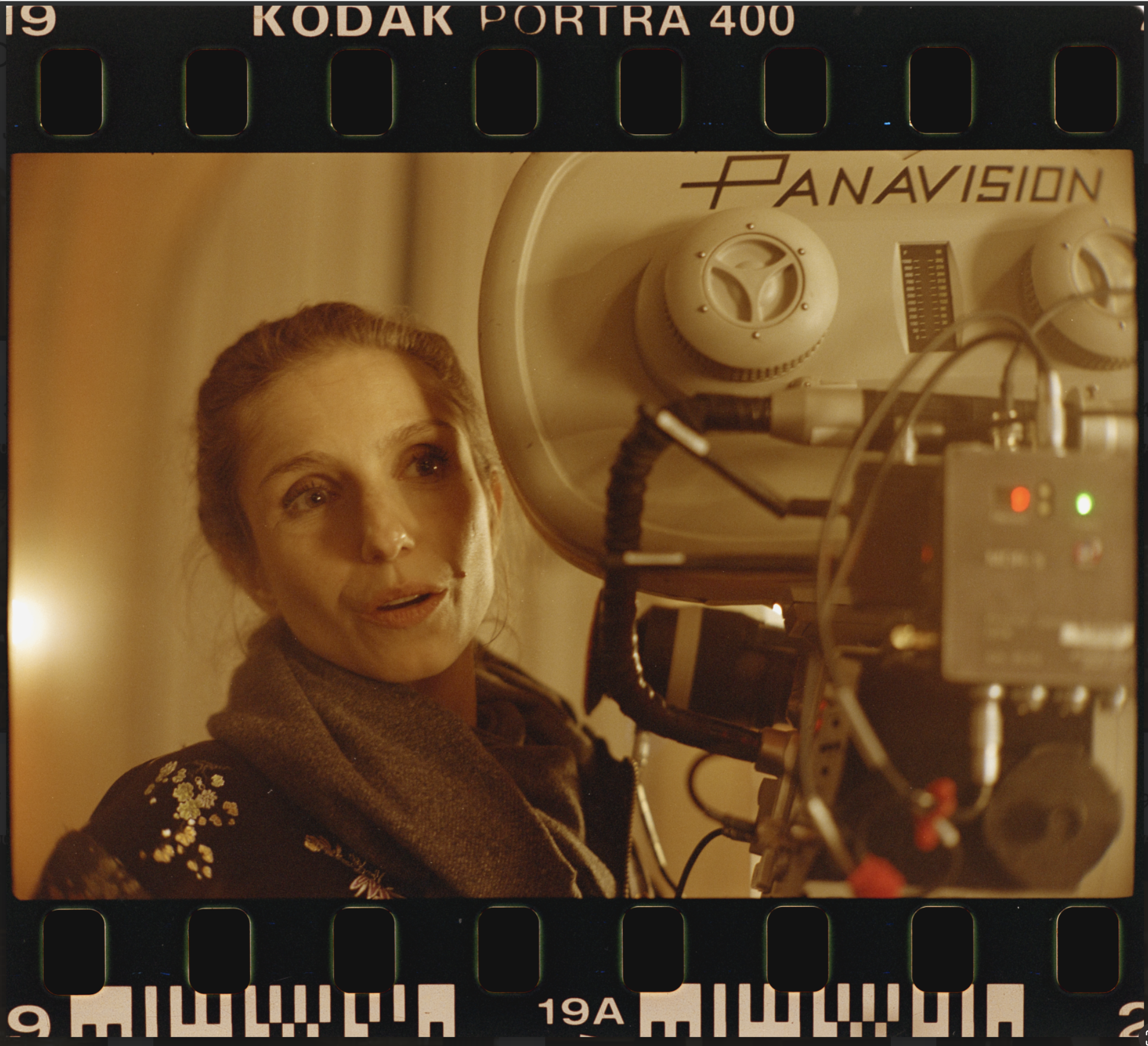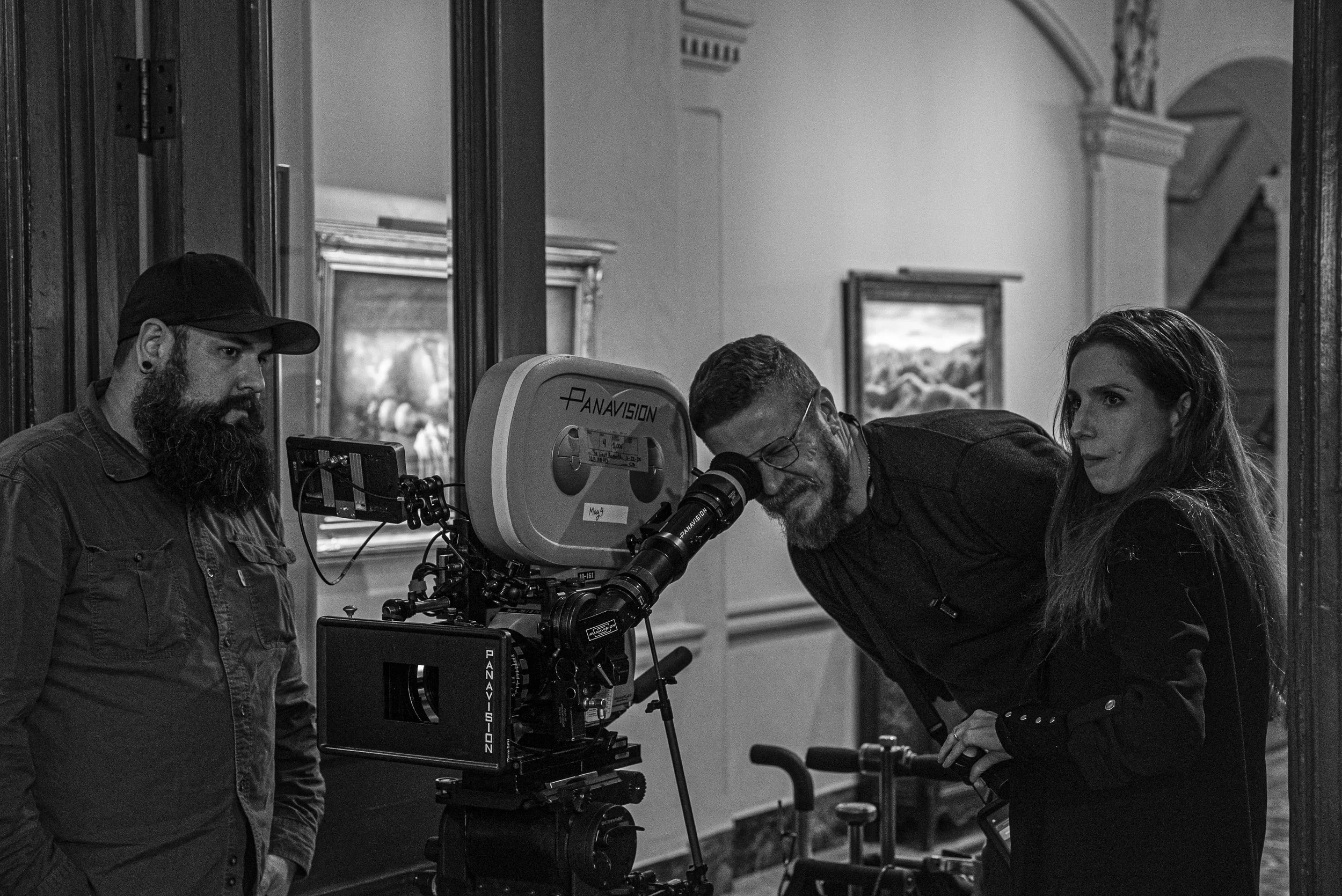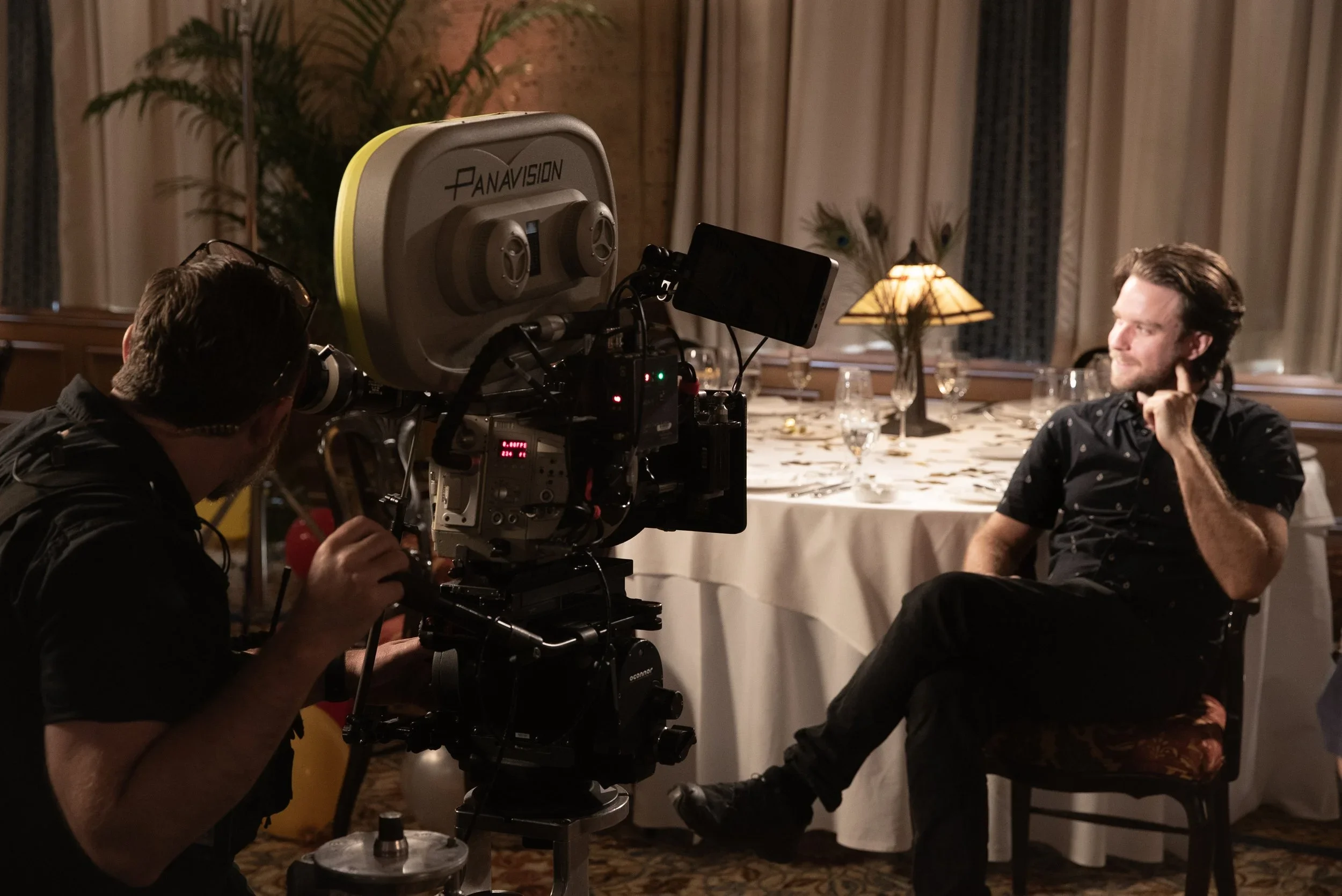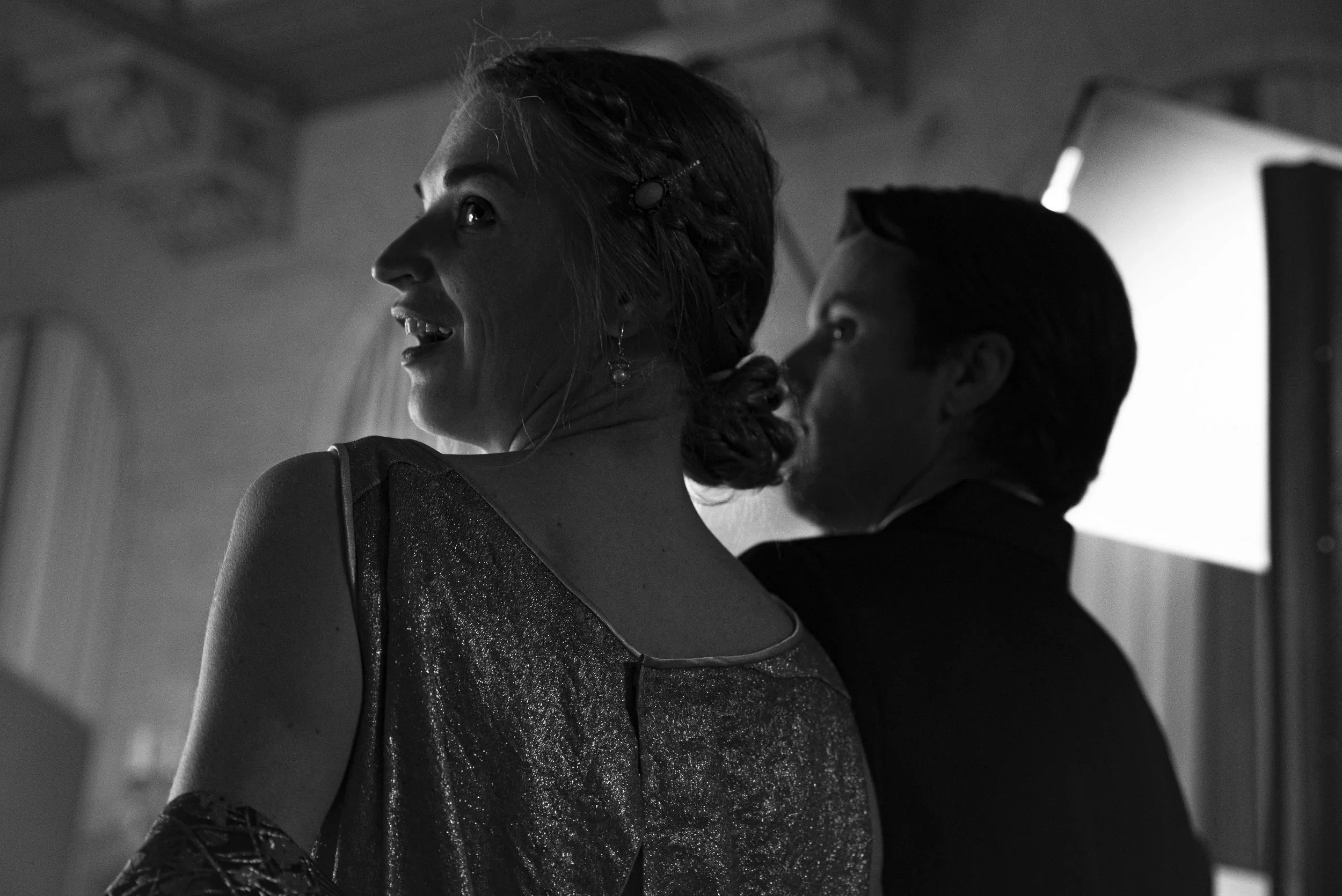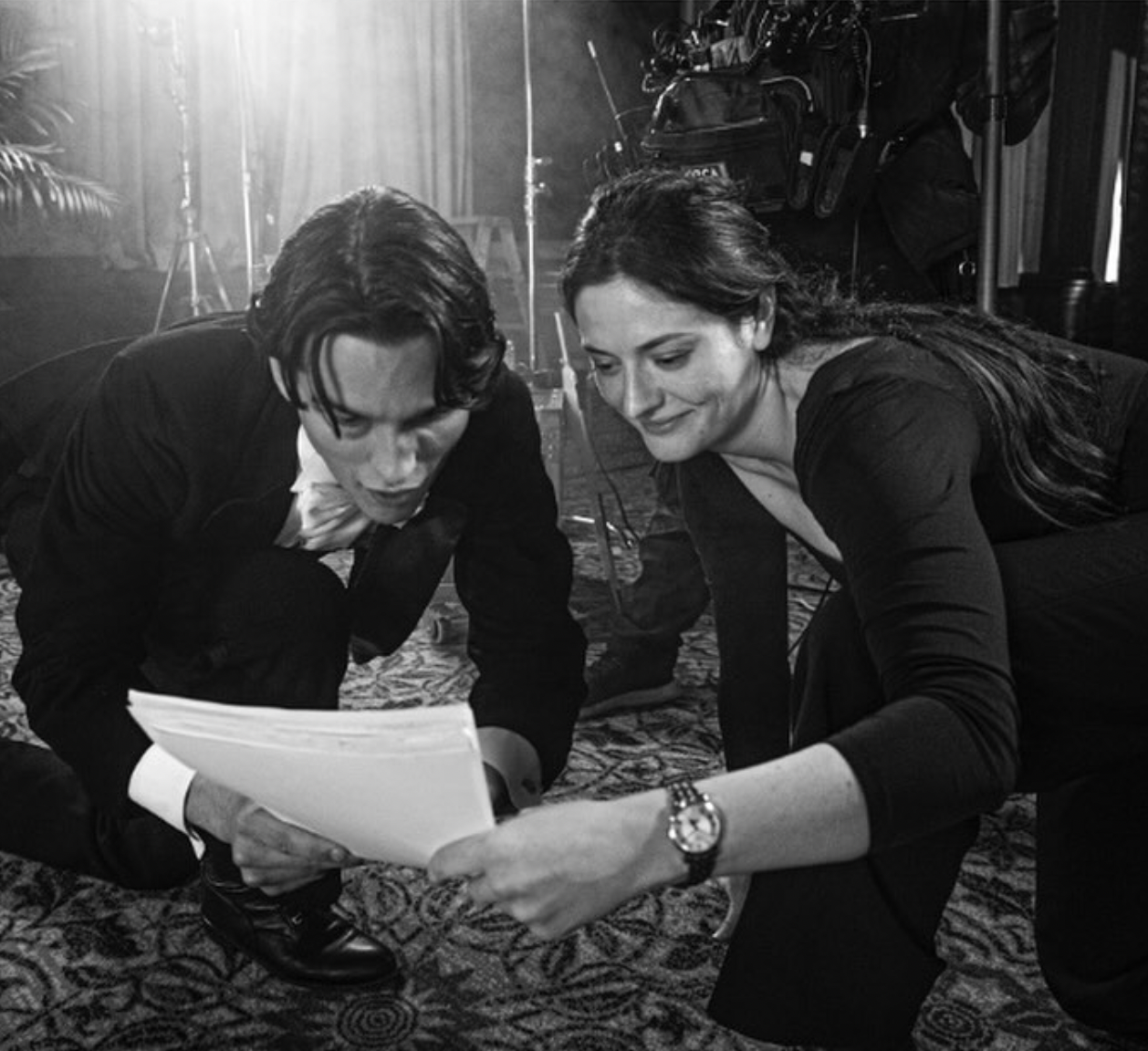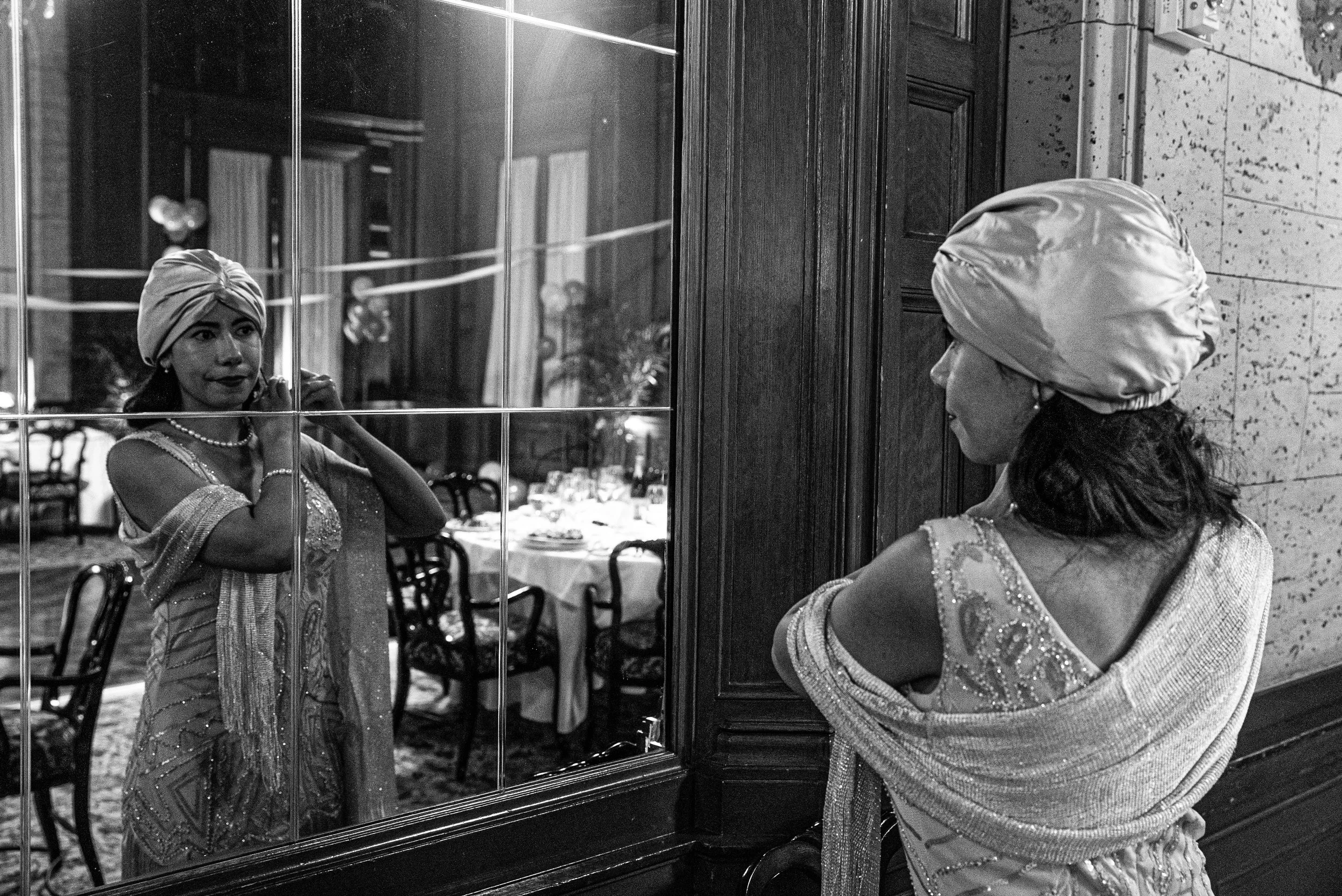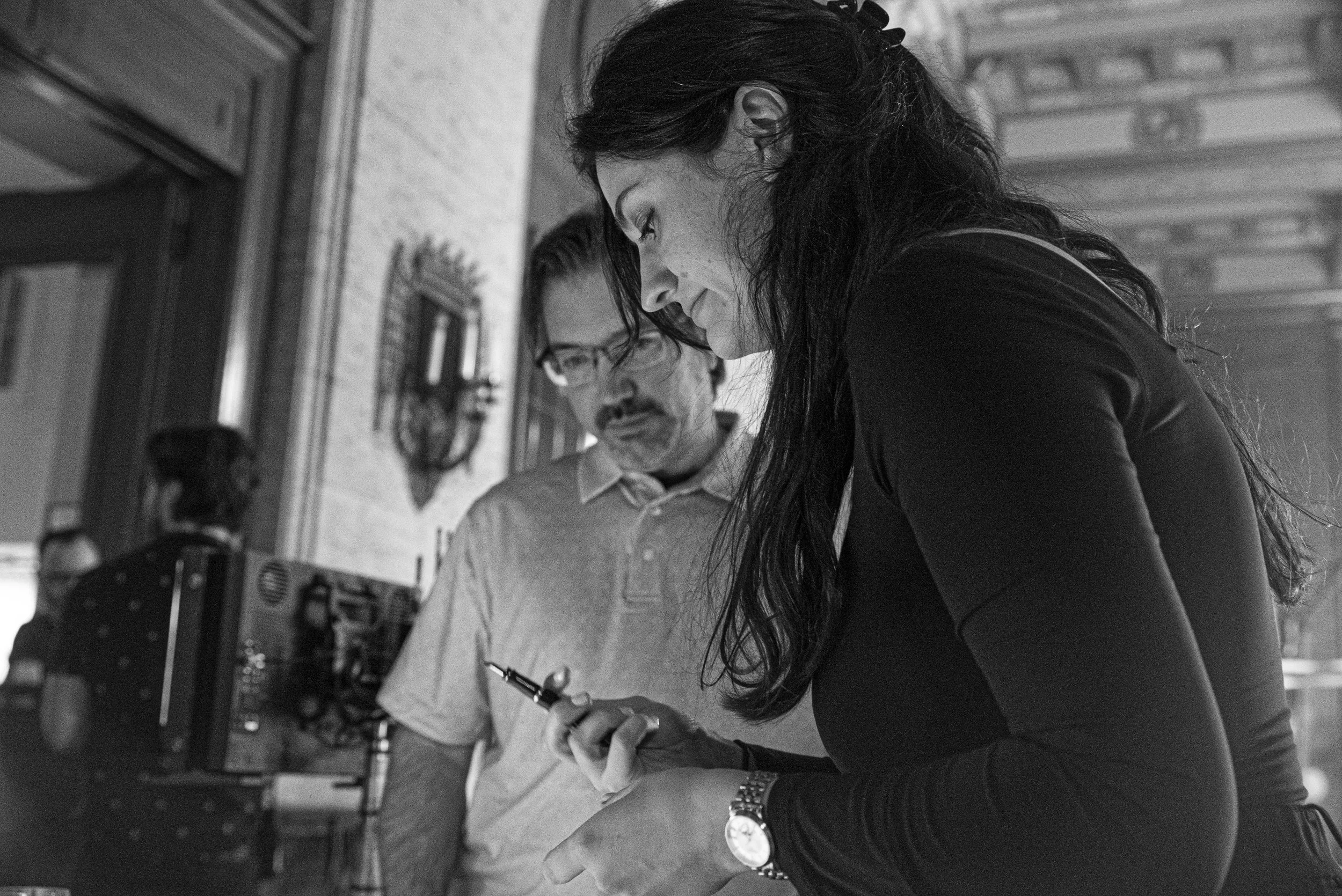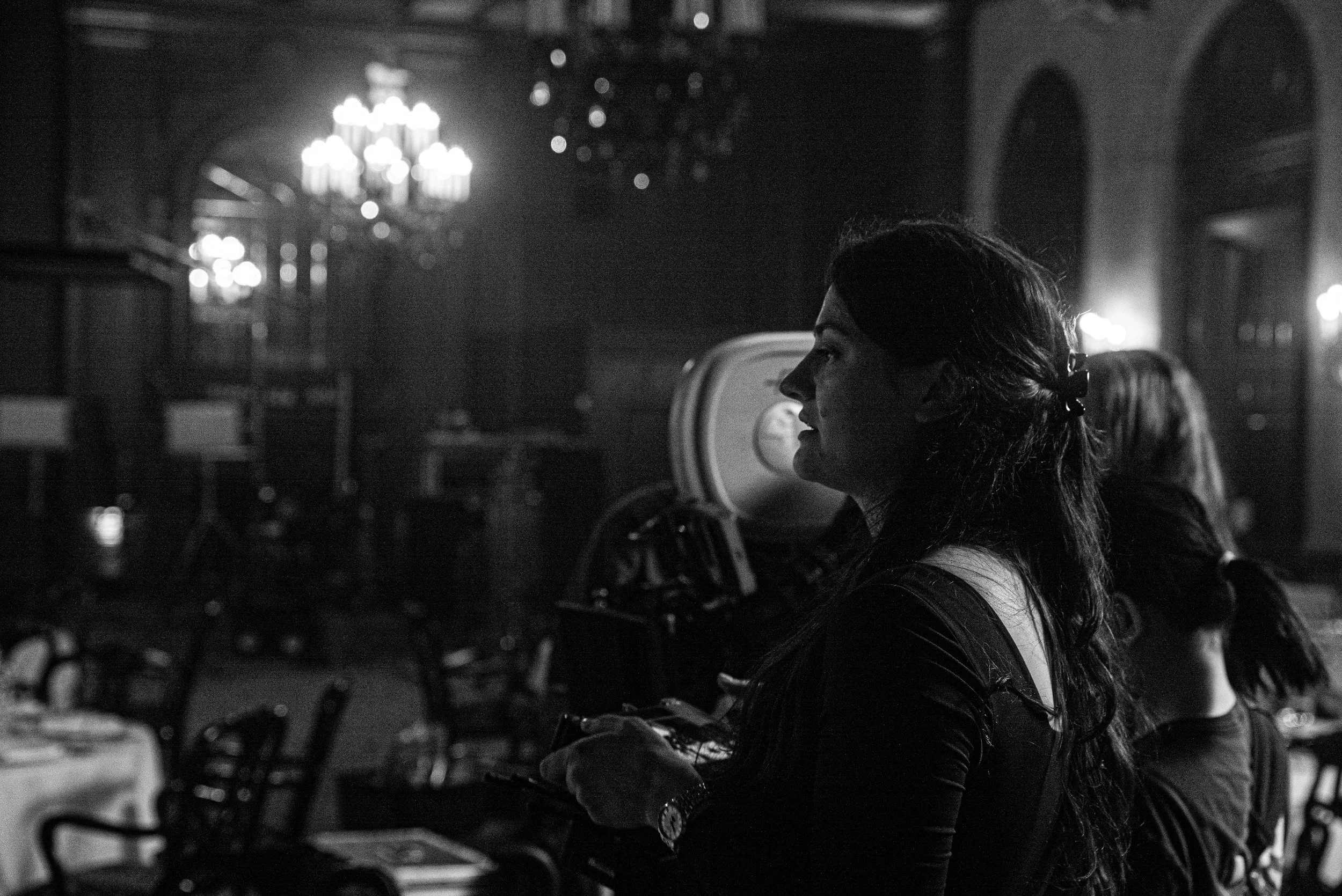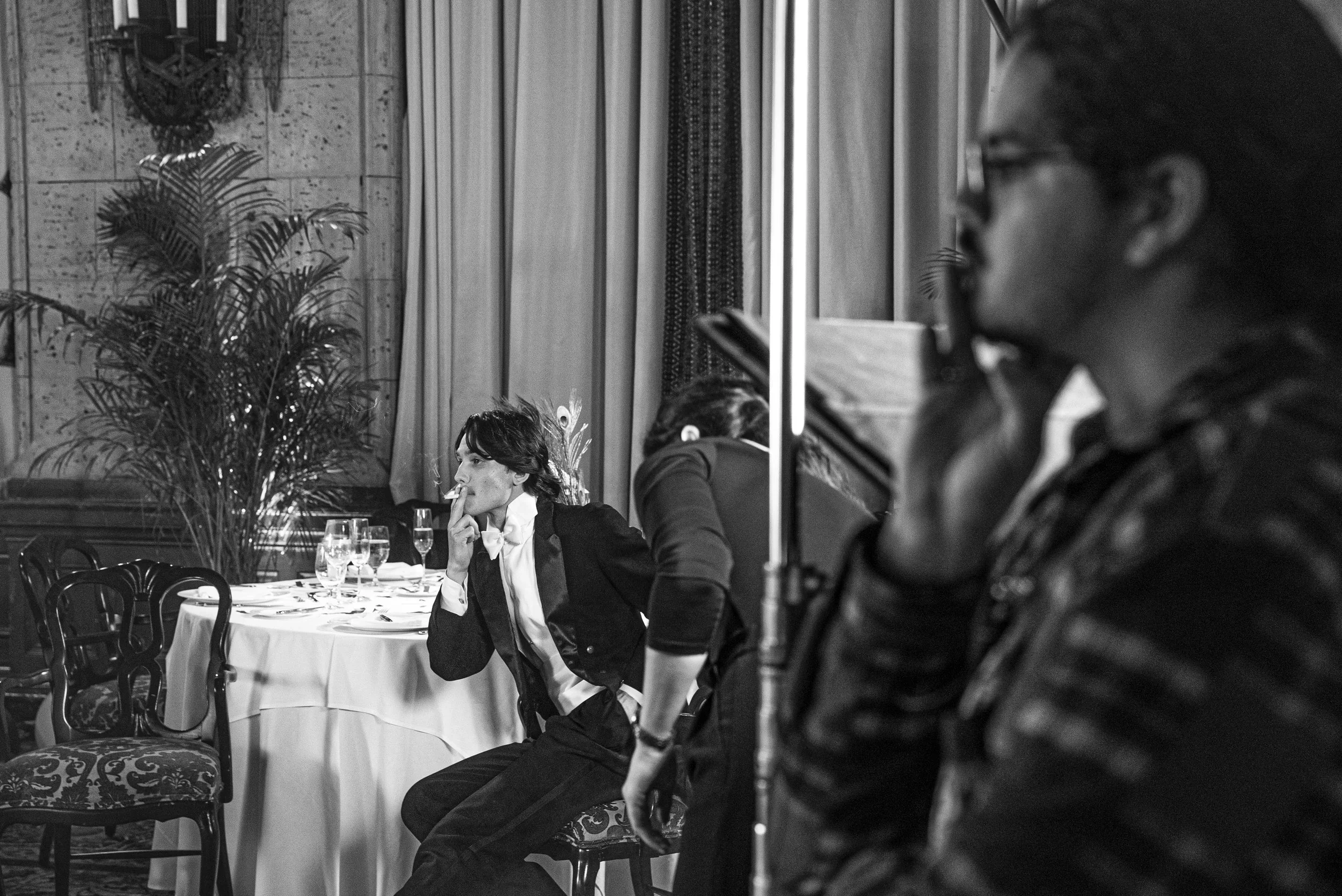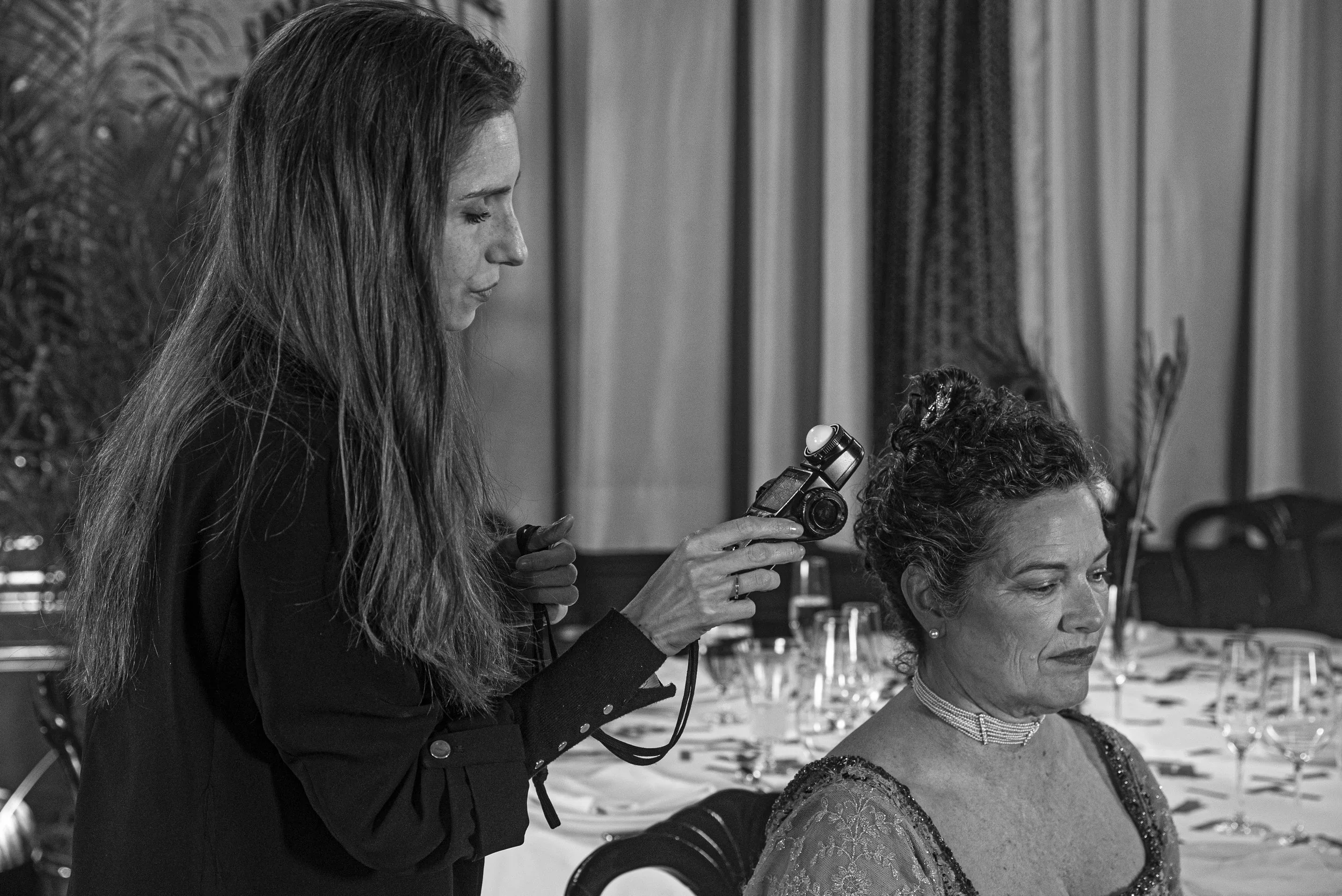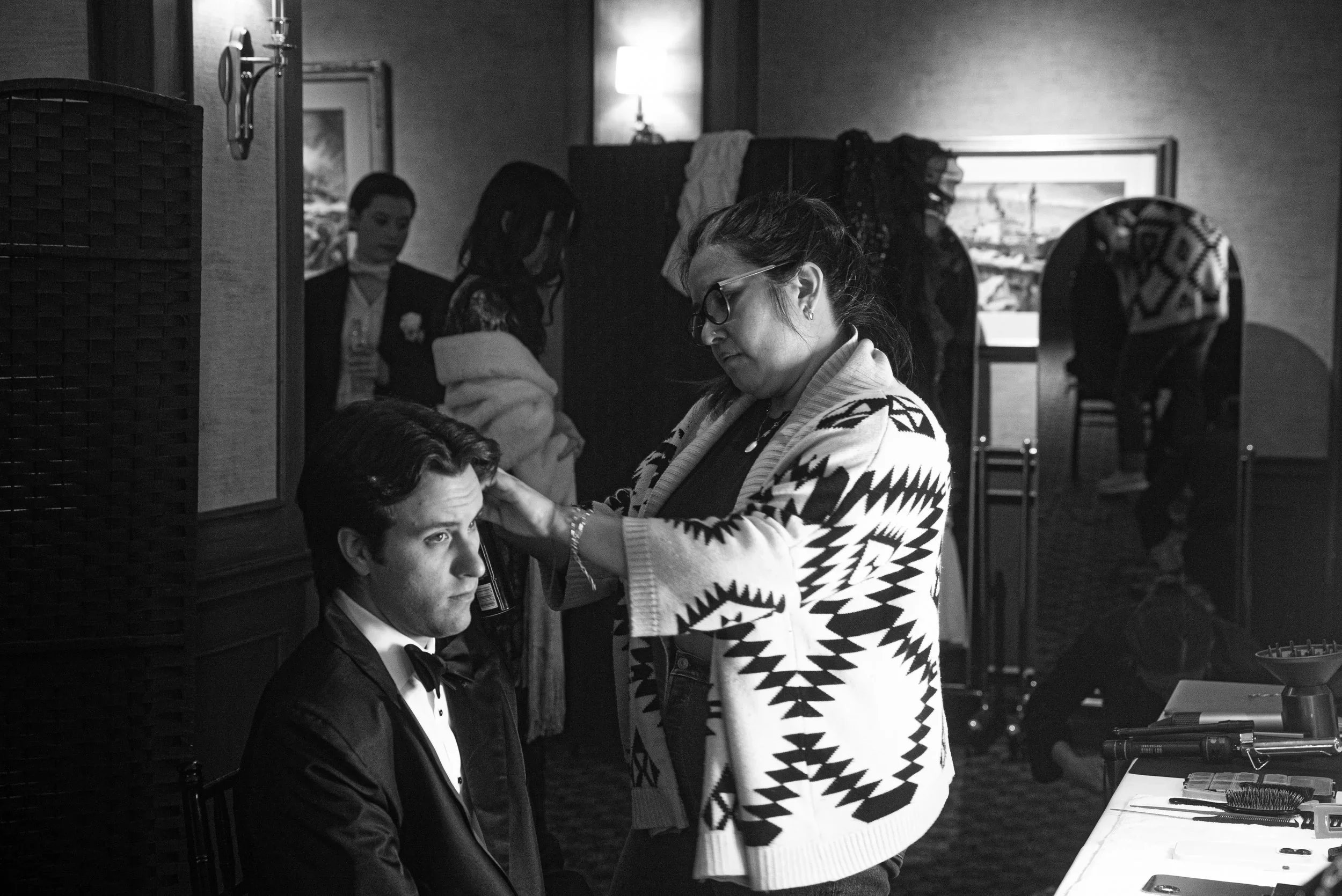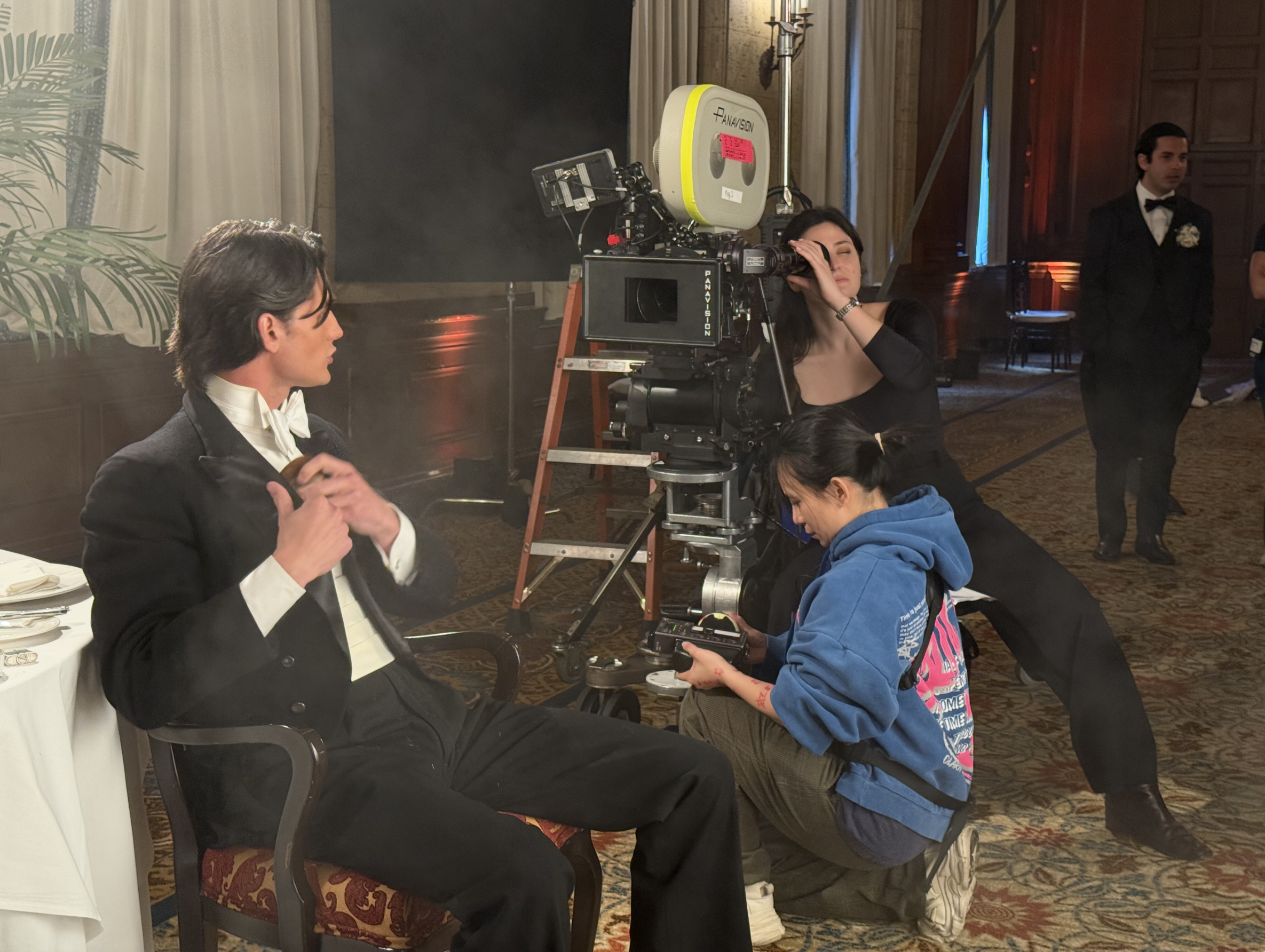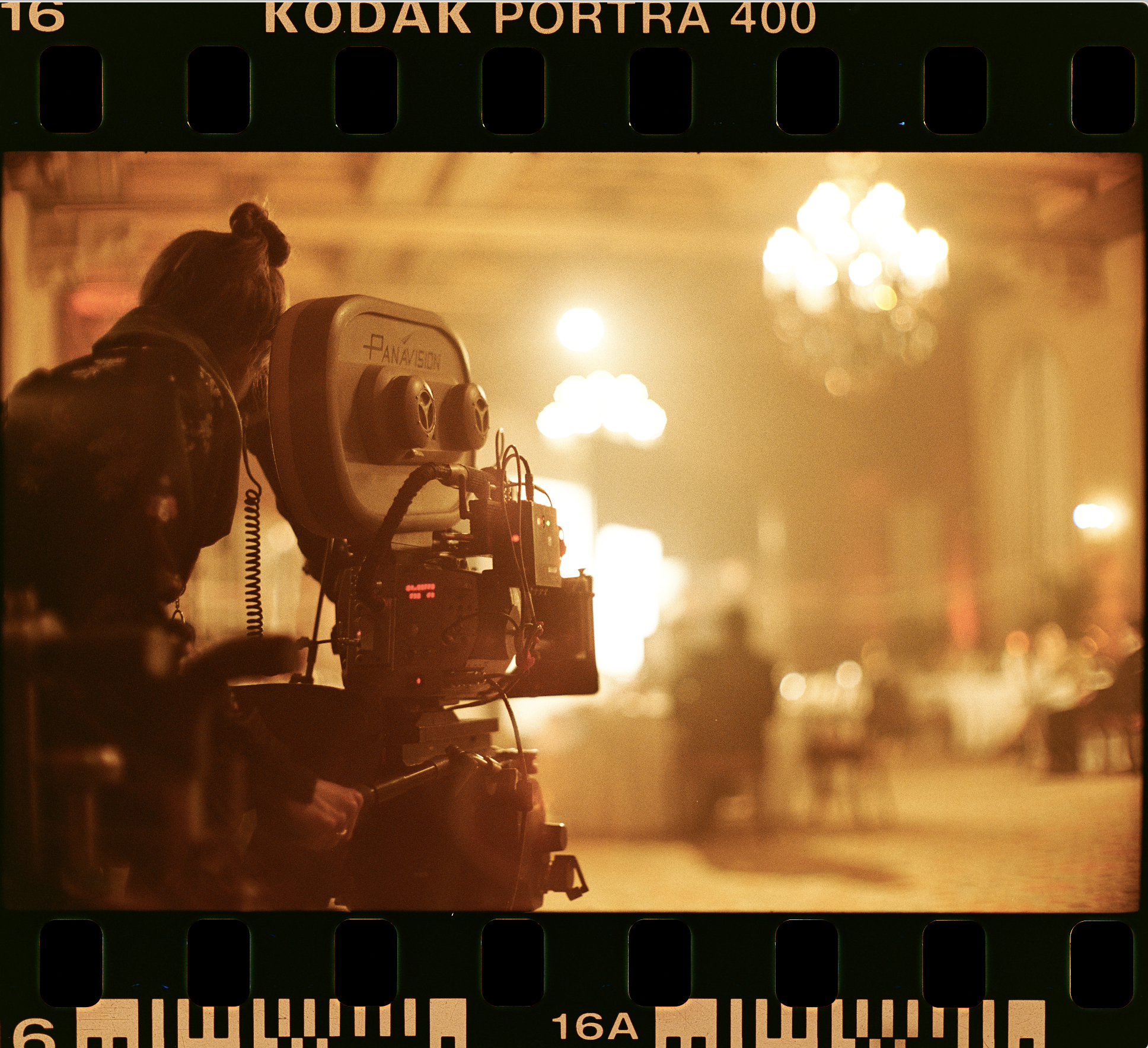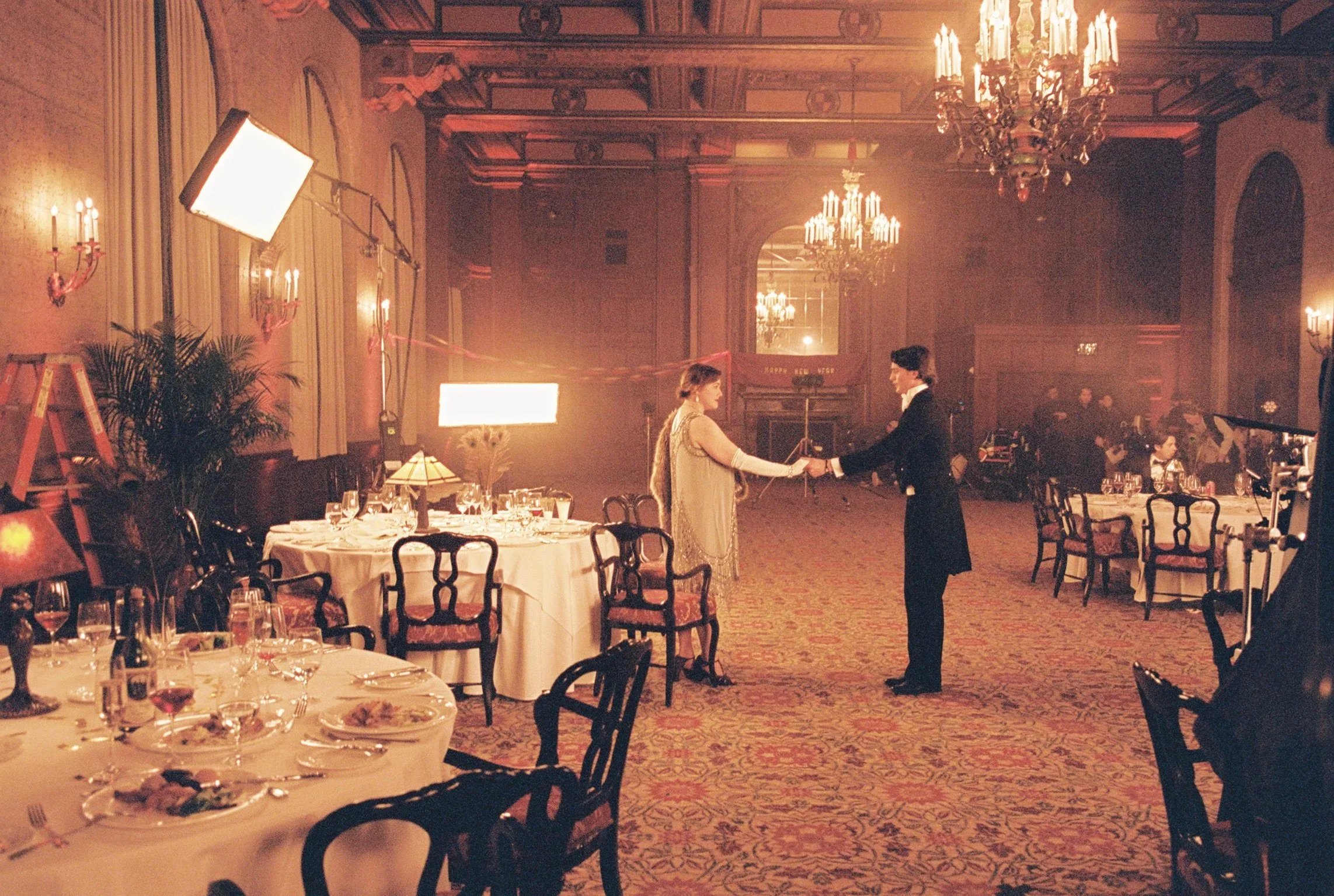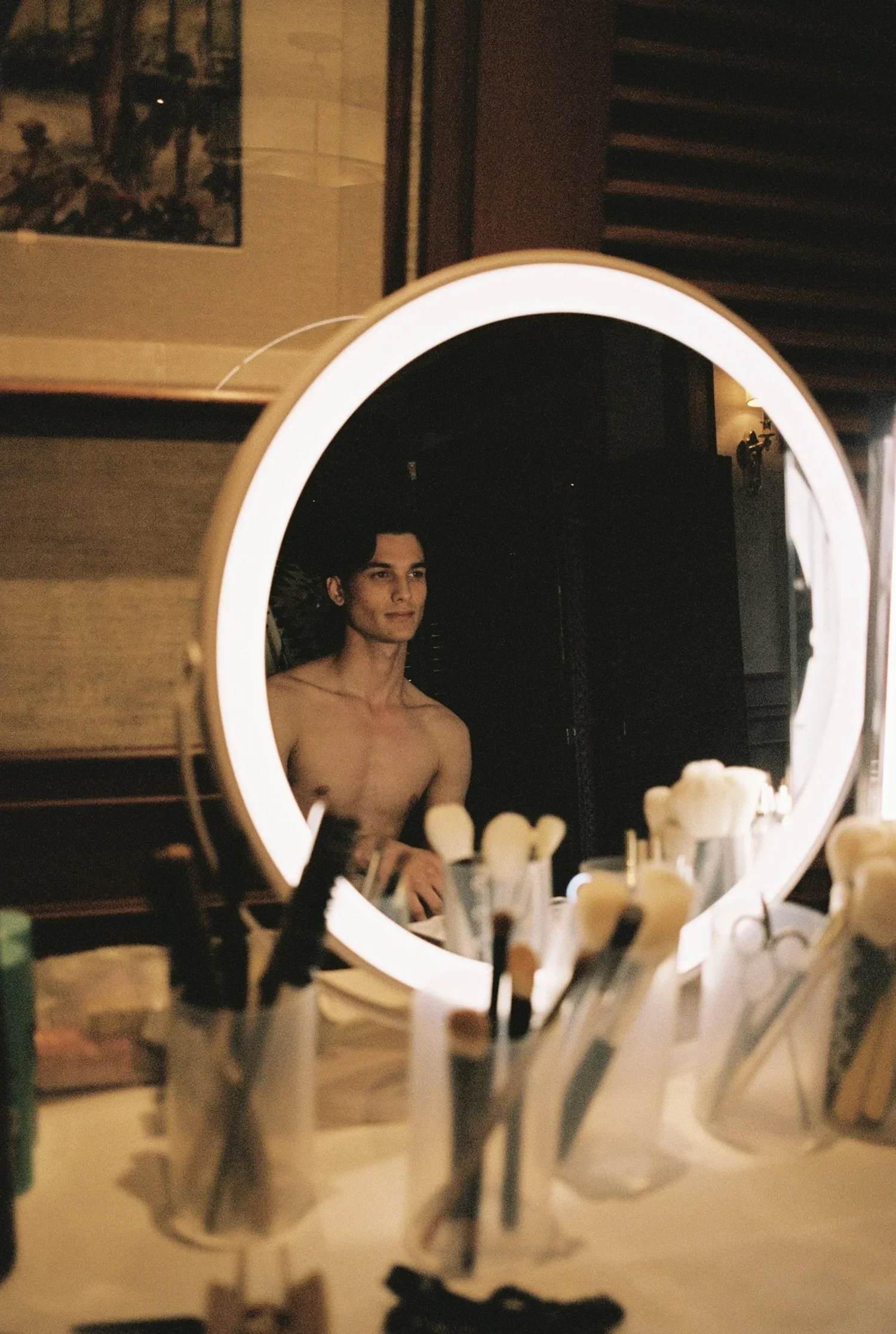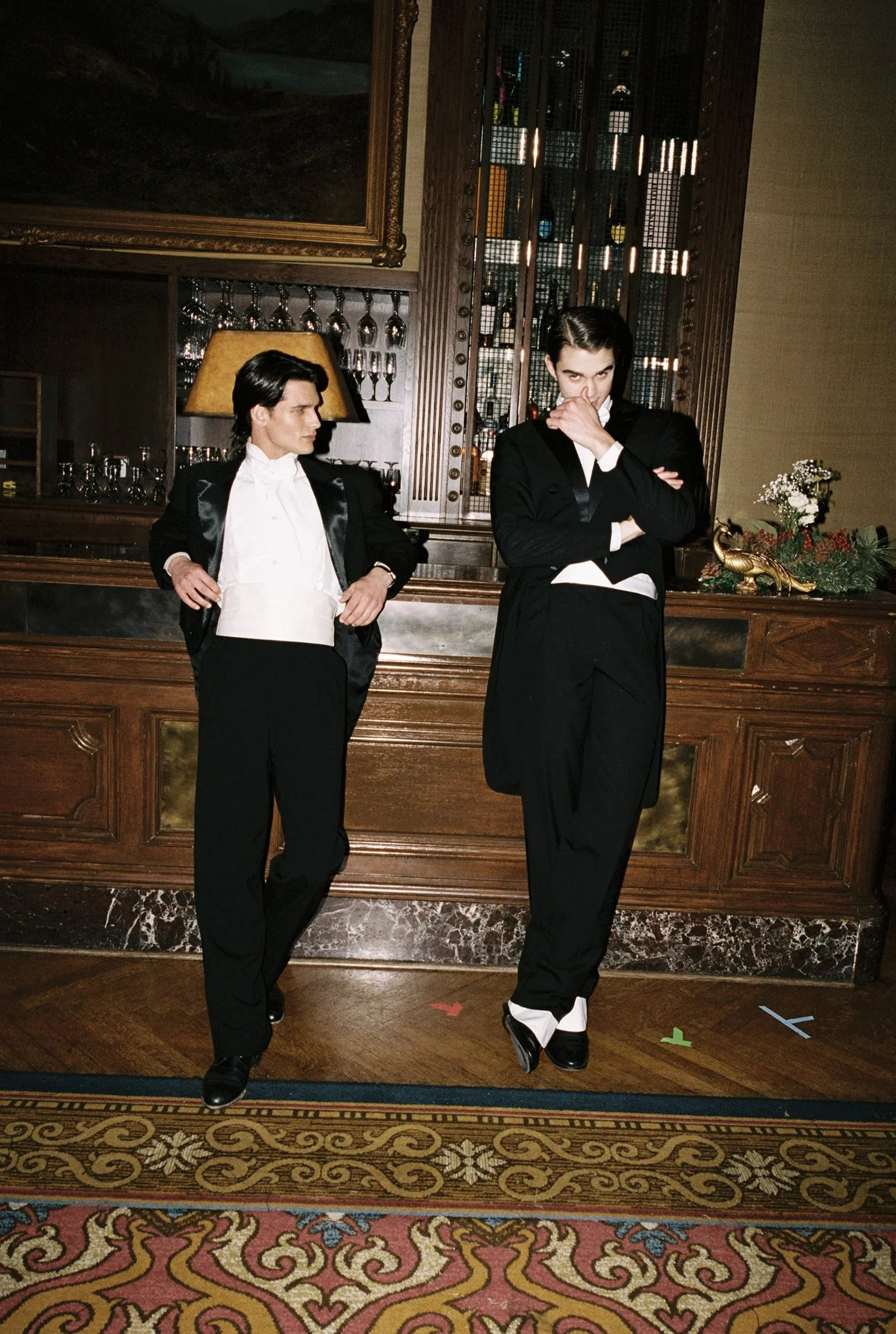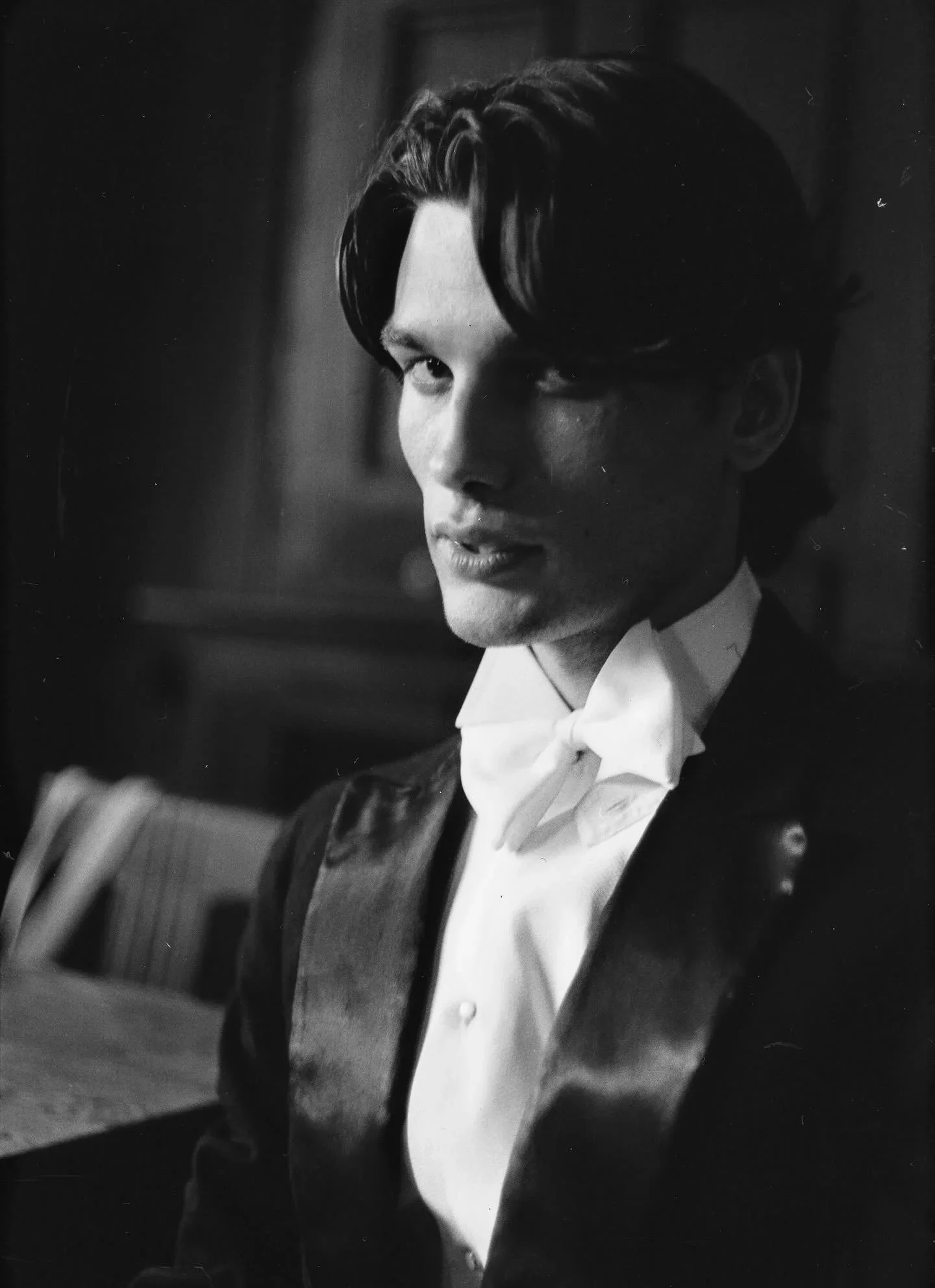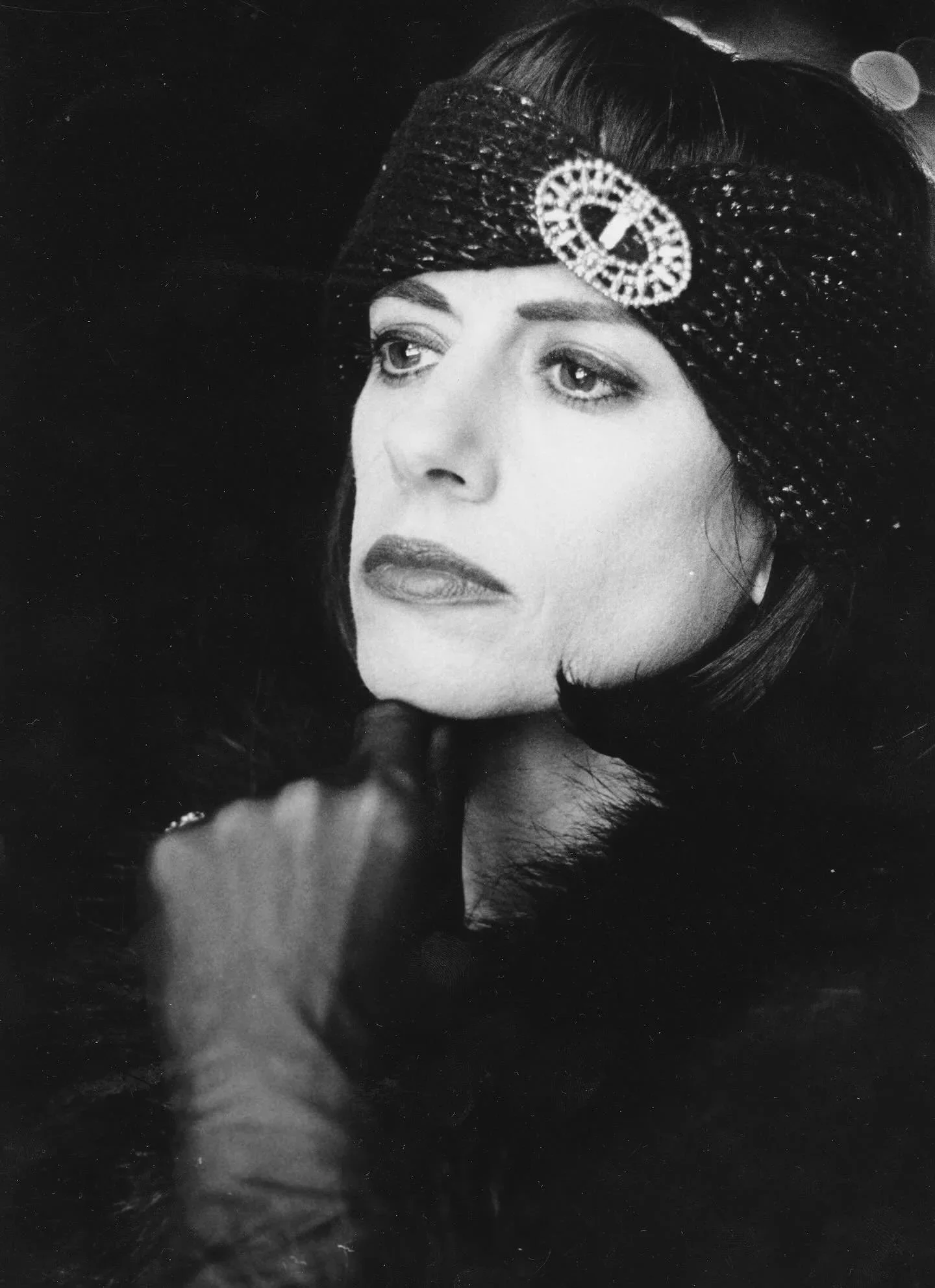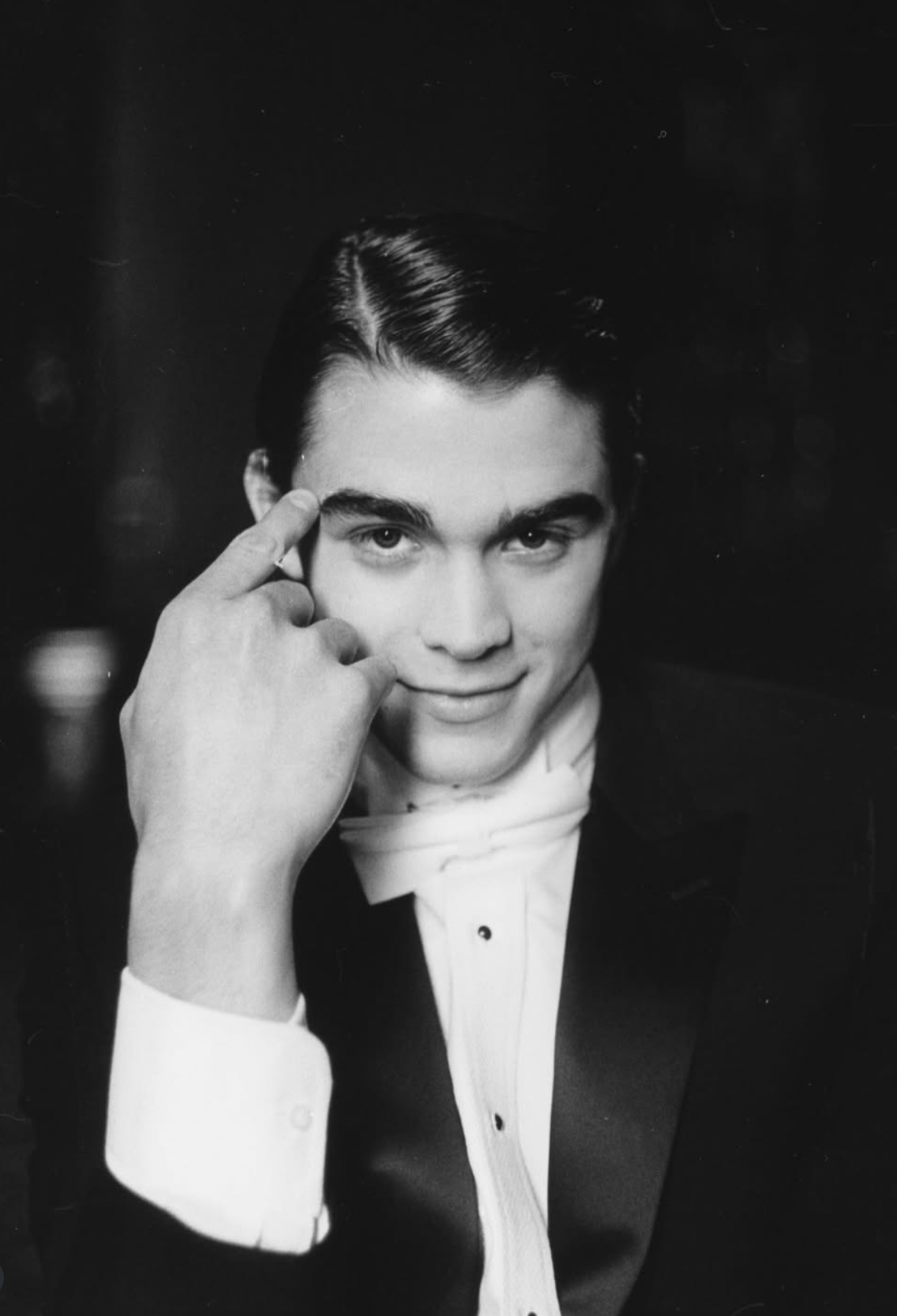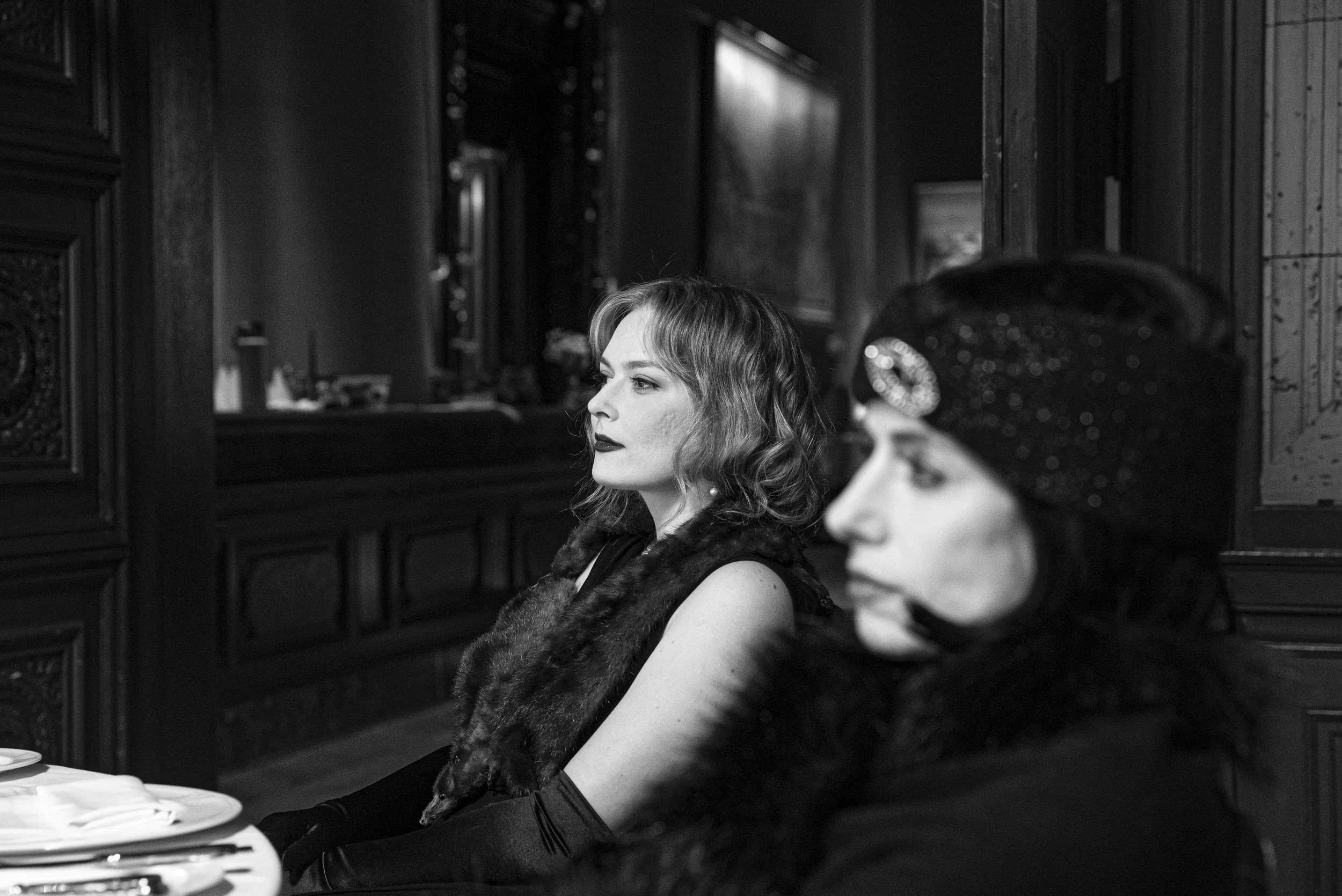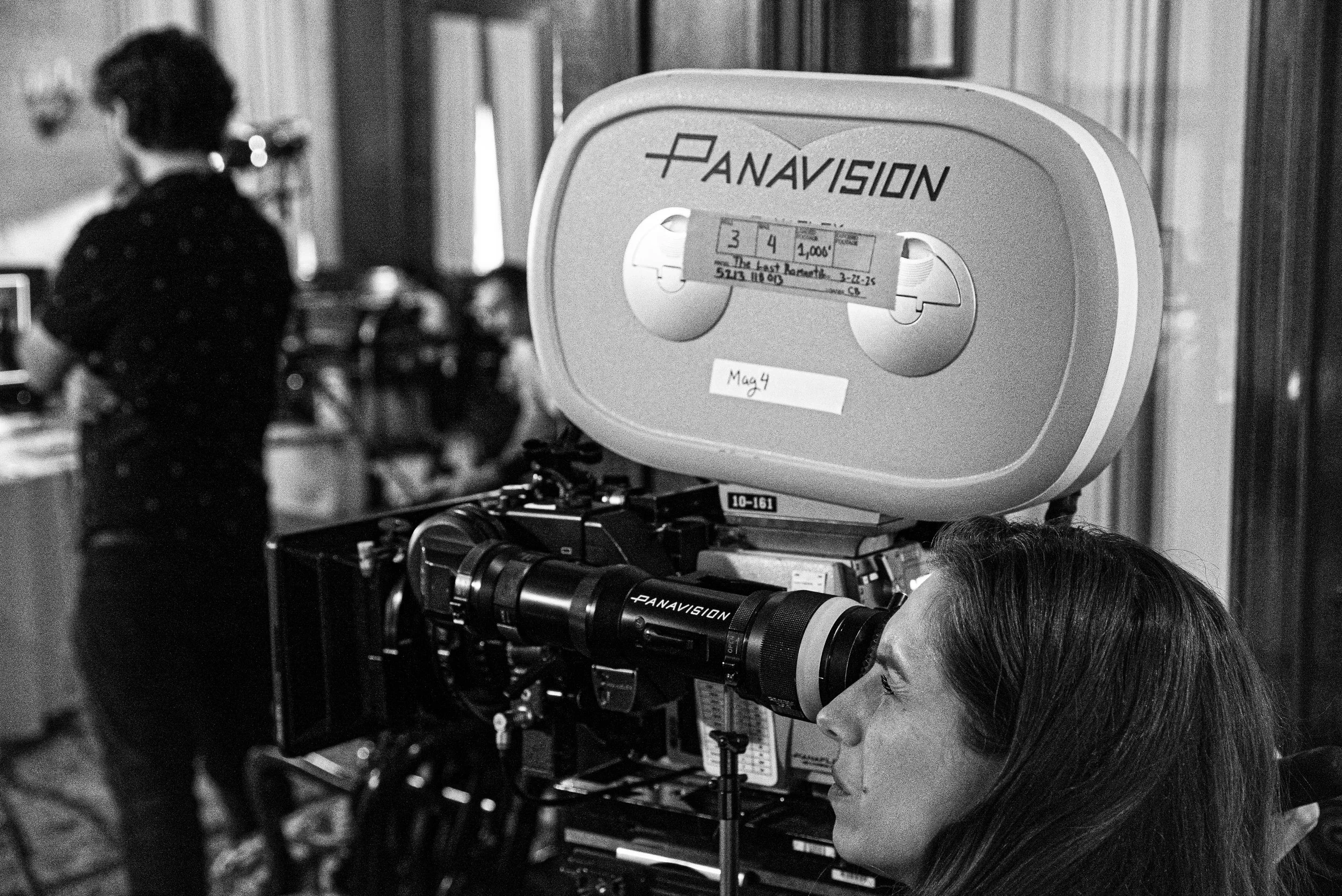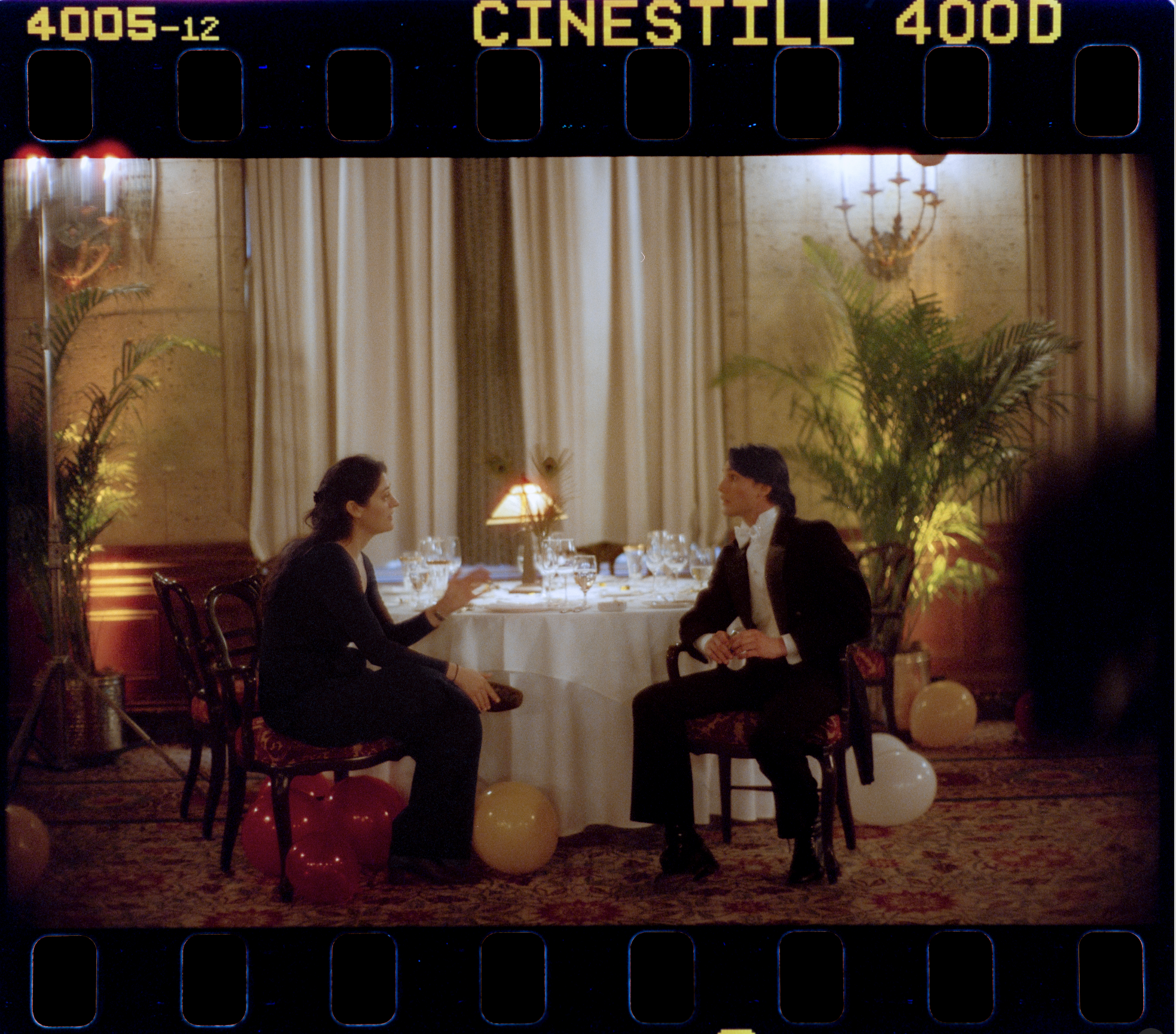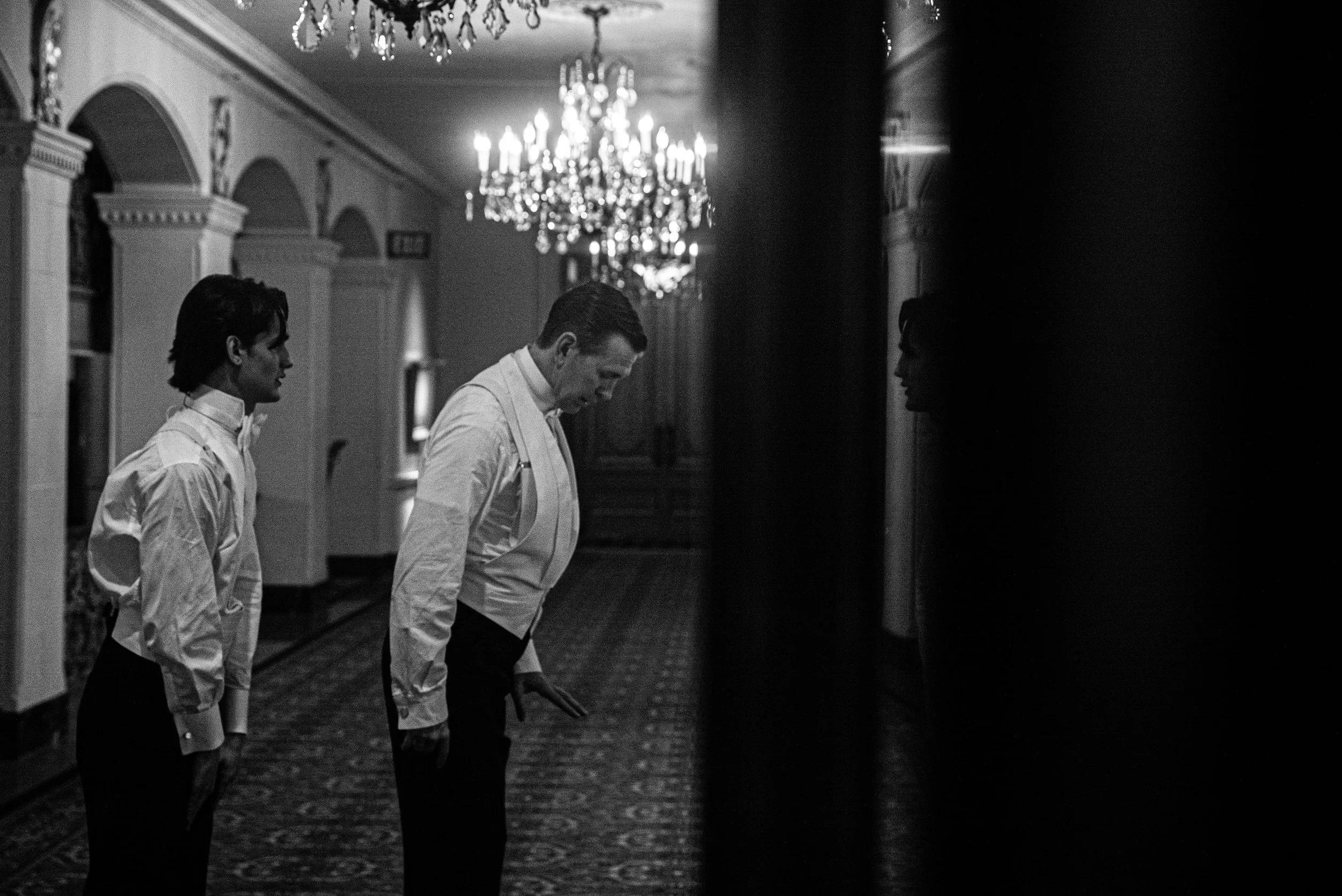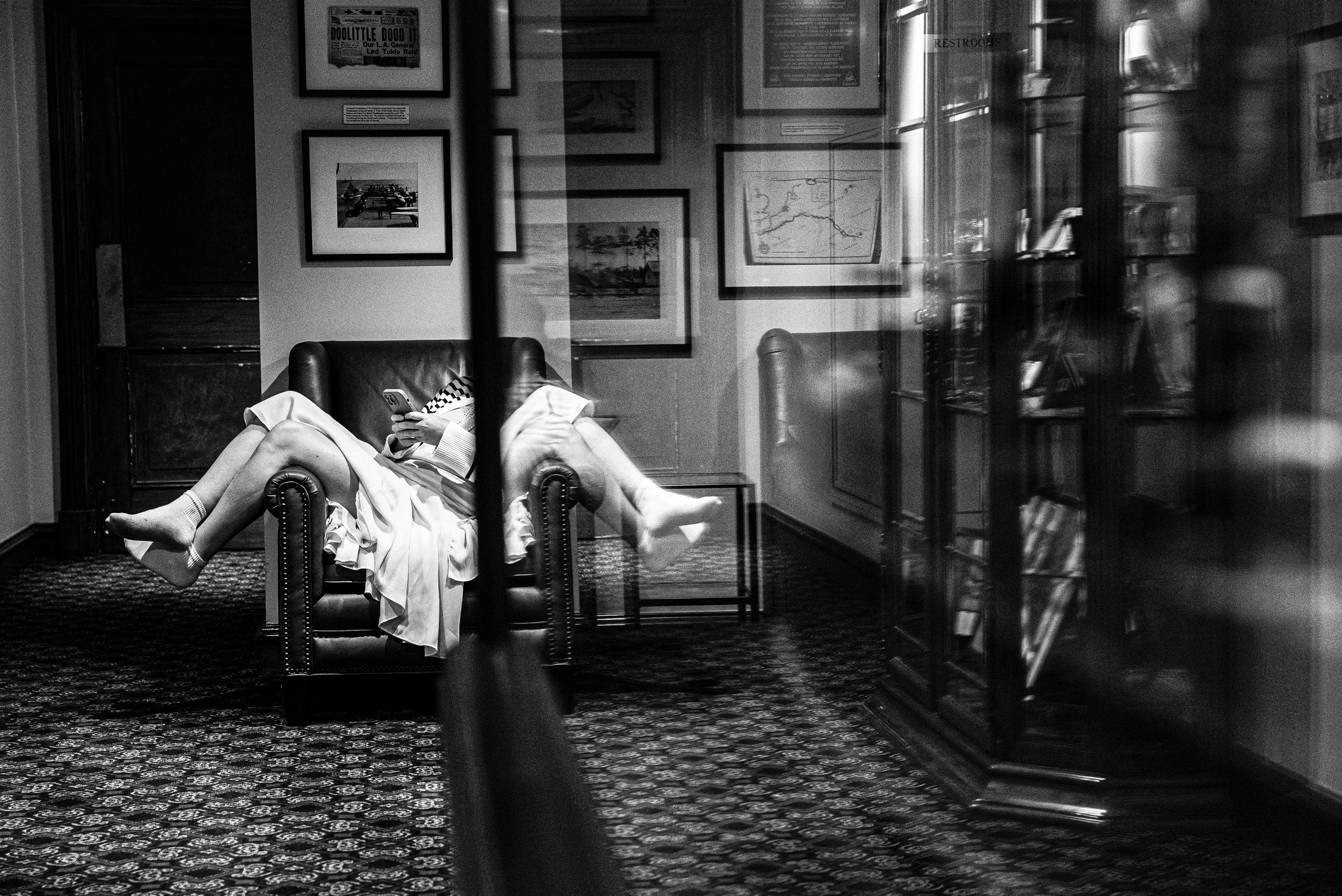View our write-up from Kodak here!
FEATURE SYNOPSIS
1927. After the death of actor Rudolph Valentino, studio executive Maeve Montgomery is determined to turn taxi dancer and gigolo Julian Ayers into the next romantic icon while saving her own career and marriage in a town that has little respect for either. But Julian’s meteoric success leads them both down a path of destruction, scandal, and vengeance. The Last Romantic is a story about sex, power, and the price of pursuing an impossible ideal on the threshold of Hollywood’s Golden Age.
BACKGROUND
by Catherine Mosier-Mills, Director/Writer
In spring 2025, we completed the short proof-of-concept for The Last Romantic, a feature film that is currently in development. On this page, you’ll see select frames from the proof that showcase the beautiful, evocative cinematography of Thaïs Castralli, all shot on 35mm film (200T/500T).
As someone who grew up in the digital age, I never expected to be able to work with film, but learning how to shoot 35mm on a vintage Eclair Cameflex completely changed my approach to filmmaking. Feeling the sprockets engage with physical film as it moves through the camera is a thrill unlike any other; the sensation is like a roller coaster getting into gear as the camera pulls you — and the story— forward. Every frame is precious. Five years into my film experience, there’s no greater satisfaction than seeing the image in my head permanently preserved on celluloid.
Though this time we had the luxury of using incredible Panavision cameras, shooting on film was still essential for a story about crafting an image during the early days of Hollywood. We used 35mm film and “movie star lighting” to show how early cinematographic techniques transformed actors into gods, while sourcing inspiration from paintings; silent films (including many featuring Rudolph Valentino, who heavily inspires the protagonist in the film); lush period pieces like Phantom Thread, The Leopard, and 1941’s Blood and Sand; and the photography of George Hurrell. Every detail was essential, not only from a story standpoint, but also from an aesthetic one. We poured over everything from antique lighters to cufflinks to historic photos of hotels to capture the exact feel of an upscale 1920s ballroom; there is no detail too small when creating a world on-screen. When we couldn’t find something, we made it.
It was also fascinating seeing how the cast adapted to the world of the film — especially the background actors, almost all of whom are working actors themselves, who played the essential role of setting the scene of the ballroom in small vignettes.
The brilliant Thaïs Castralli and her talented camera team are a director’s dream. She is a true collaborator who understands the film not only from the aesthetic and technical level, but from the emotional one as well. She is a thoughtful and dedicated professional who steps into her role with passion, vigor, and insight. I am honored to work with her and look forward to our future collaborations.
Newcomer Nick Olsen stepped effortlessly into his first-ever film role as Julian for the proof. Together, we spent months preparing (albeit virtually, as he was based in New York at the time), with Nick diving deeply into the character of Julian and drawing out his own personal similarities, even writing a diary as the character. (Forrest Walsh, choreographer extraordinaire, came up with a period-accurate waltz routine that Nick easily picked up within a few days and practiced with Julian levels of devotion — and one that would make Valentino proud!)
Heather Langenkamp, best known for her roles as a scream queen in the Nightmare on Elm Street franchise, embody a completely different kind of role — and understand it on a deep, intellectual level, especially as someone who is also accustomed to being a “symbol.”
Billy Keogh, who played Julian’s rival dancer, took some of the gorgeous 35mm and 120mm BTS photos you see down below, which are works of art unto themselves. Billy is a multidisciplinary artist; he is an actor, photographer, and also known for his viral pottery work.
Catia Ojeda, who played Maeve, stepped in on a moment’s notice and learned her waltz routine on the spot right before filming. Katherine LaVictoire made us (literally) cheer for how perfectly she embodied Fay Whitley; it was initially a much shorter moment, but her performance made me expand it.
Diego Garcia, a multi-talented artist, not only shone as the waiter, but also invited me to speak on his wonderful podcast where he has fascinating conversations with fellow artists. And Jessi Spickard, who played a rather enthusiastic female patron, is a talented filmmaker herself and a fierce proponent of shooting on film. (Also, my extended gratitude goes to Anthony Booth, who not only took beautiful super 8 BTS footage, but played many different background characters; and Joanna Ramos, who runs a wonderful (and historically truthful!) Valentino fan account.
Credit: Anthony Booth (Super 8)
CREDITS
Julian Ayers: Nick Olsen
Waiter: Diego Villarreal Garcia
Edith: Heather Langenkamp
Rival Dancer: Billy Keogh
Maeve Montgomery: Catia Ojeda
Female Patron: Jessi Spickard
Fay Whitley: Katherine LaVictoire
FEATURING: Lushia Anson, Alexandria Bevilacqua, Anthony Booth, Svetlana Dedova, Victoria Dors de Castro, Elisa Ellis, Nicholas Escobar, Nicole Guibord, Tate Hildyard, Zoey Kriegmont, Arden Lasalle, Neva Leoncini, Laura Marlowe, Tyler McKenna, Caroline Nelson, Robert Olsen, Joanna Ramos, Krí Schafer, Whit Spurgeon
Written and Directed By: Catherine Mosier-Mills
Director of Photography: Thaïs Castralli
Film Editor: Stephen Boyer
Production Design: Nic Weethee, Catherine Mosier-Mills
Producers: Catherine Mosier-Mills, Eric Michael Kochmer, Nate Lipp, Thaïs Castralli, Whit Spurgeon
Choreographer: Forrest Walsh
Hair and Makeup Artist: Carolina Pizarro-Hernandez
Set Dressers: Jason Thirlaway, Ariel Vida
Wardrobe Supervisor: Jill Nofziger
Set Costumer: Stephany Rosas
Sound Mixer: Oleskii Laptev
BTS Photographers: Billy Keogh, Tate Hildyard, Anthony Booth
1st Assistant Director: Anna McNatt
2nd Assistant Director: Bryant Familia
Production Assistants: Braulio Barreto, Guiliana Gentile, Kyle McCue, Kri Schafer
1st Assistant Camera: Ricky Jhou Ruei-Ci
2nd Assistant Camera: Craig Boydston, Aron Meinhardt, Erica Chan
Gaffer: Isaak van der Muelen
Dolly Grip: Rich Robles
Best Boy Grip: Aaron Pong
Best Boy Electric: John Fisher
Colorist: Alexander Schwab
35mm Film Processing: Fotokem
Special Thanks: Panavision, Kodak, Fotokem
Catherine Mosier-Mills (director). Credit: Tate Hildyard
Nick Olsen (Julian Ayers); Catia Ojeda (Maeve Montgomery). Credit: Billy Keogh
Catherine Mosier-Mills (Director); Thais Castralli (Cinematographer). Credit: Craig Boydston
Catherine Mosier-Mills (Director). Credit: Craig Boydston
Self-portait. Credit: Billy Keogh
Thais Castralli (Cinematographer)
Credit: Billy Keogh
Catherine Mosier-Mills (Director); Thais Castralli (Cinematographer)
Jessi Spickard (Lottie); Anthony Booth (Patron). Credit: Craig Boydston
Nick Olsen (Julian Ayers); Billy Keogh (Rival Dancer). Credit: Thais Castralli
Nick Olsen (Julian Ayers); Catia Ojeda (Maeve Montgomery). Credit: Billy Keogh
Thais Castralli (Cinematographer); Isaak van der Muelen (Gaffer). Credit: Craig Boydston
Credit: Billy Keogh
Credit: Billy Keogh
Zoey Kriegmont (Patron). Credit: Tate Hildyard
Forrest Walsh (Choreographer/Patron); Alexandria Bevilacqua (Patron). Credit: Craig Boydston
Heather Langenkamp (Edith); Diego Villarreal Garcia (Waiter). Credit: Tate Hildyard
Nick Olsen (Julian Ayers); Diego Villarreal Garcia (Waiter). Credit: Craig Boydston
Ricky Jhou Ruei-Ci (1st AC). Credit: Craig Boydston
Heather Langenkamp (Edith); Catherine Mosier-Mills (Director). Credit: Craig Boydston
Thais Castralli (Cinematographer). Credit: Craig Boydston
Credit: Billy Keogh
Credit: Tate Hildyard
Laura Marlowe, Forrest Walsh, Tyler McKenna, Alexandria Bevilacqua, Jessi Spickard, and Anthony Booth (Patrons.) Credit: Craig Boydston
Catherine Mosier-Mills (Director); Thais Castralli (Cinematographer)
Nick Olsen; Catherine Mosier-Mills. Turning in the film to Fotokem after an exhausting (but incredible) three-day shoot!
Nick Olsen (Julian Ayers); Catherine Mosier-Mills (Director). Credit: Tate Hildyard
Thais Castralli (Cinematographer). Credit: Craig Boydston.
Isaak van der Meulen (gaffer); Credit: Tate Hildyard
Aron Meinhardt (2nd AC/swing.) Credit: Tate Hildyard
Svetlana Dedova (Patron); Nick Escobar (Patron). Credit: Tate Hildyard
Nick Olsen (Julian Ayers); Catherine Mosier-Mills (Director). Credit: Tate Hildyard
Caroline Nelson (Patron). Credit: Tate Hildyard
Jason Thirlaway (set dresser); Catherine Mosier-Mills (director). Choosing fountain pens.
Catherine Mosier-Mills (Director). Credit: Tate Hildyard
Credit: Tate Hildyard
Thais Castralli (Cinematographer); Heather Langenkamp (Edith.) Credit: Tate Hildyard
Nick Escobar (Patron); Carolina Pizarro Hernandez (Makeup/Hair). Credit: Tate Hildyard
Nick Olsen (Julian Ayers); Ricky Jhou Ruei-Ci (1st AC); Catherine Mosier-Mills (Director)
Credit: Craig Boydston
Credit: Billy Keogh
Nick Olsen (Julian Ayers). Credit: Billy Keogh
Nick Olsen (Julian Ayers); Billy Keogh (Rival Dancer). Credit: Thais Castralli
Nick Olsen (Julian Ayers). Credit: Ricky Jhou Ruei-Ci
Joanna Ramos (Patron); Credit: Ricky Jhou Ruei-Ci
Billy Keogh (Rival Dancer). Credit: Ricky Jhou Ruei-Ci
Victoria Dors de Castro (Patron); Joanna Ramos (Patron). Credit: Tate Hildyard
Credit: Tate Hildyard
Catherine Mosier-Mills (Director); Nick Olsen (Julian Ayers)
Nick Olsen (Julian Ayers); Forrest Walsh (Choreographer/Patron)
Credit: Tate Hildyard
